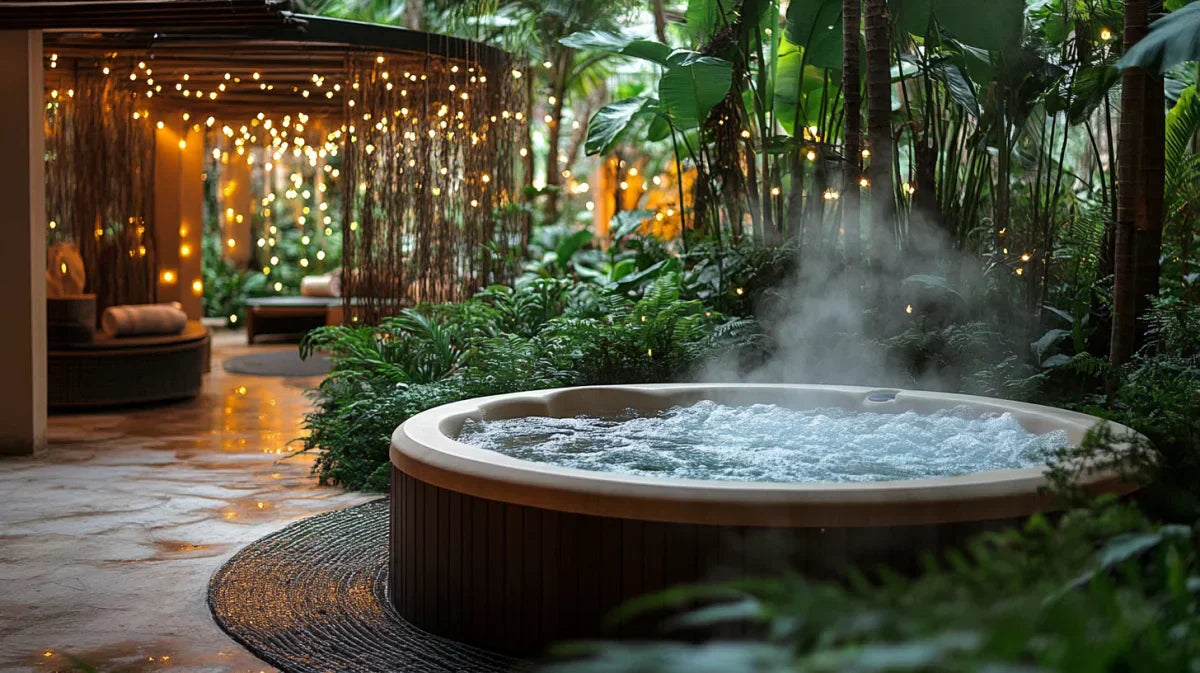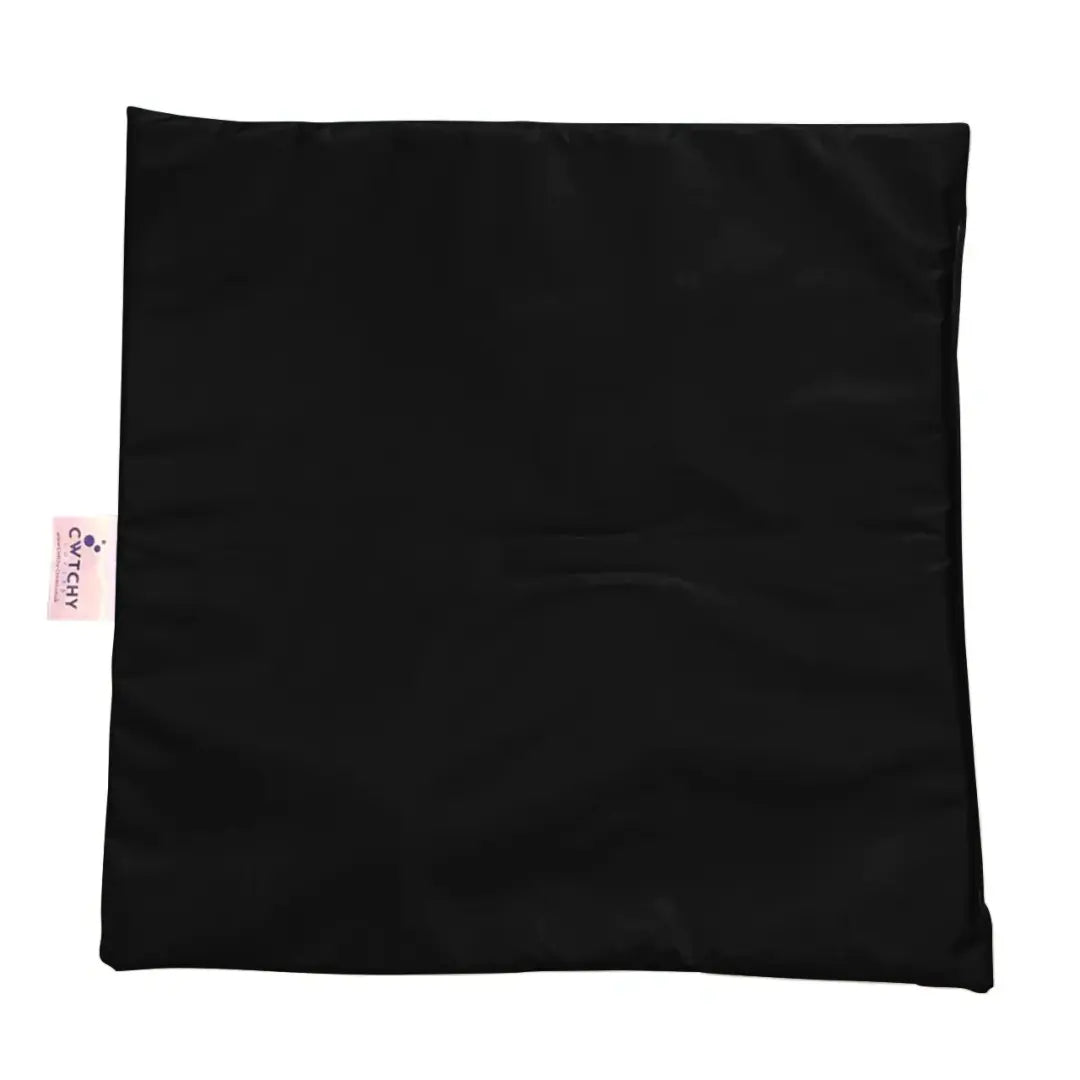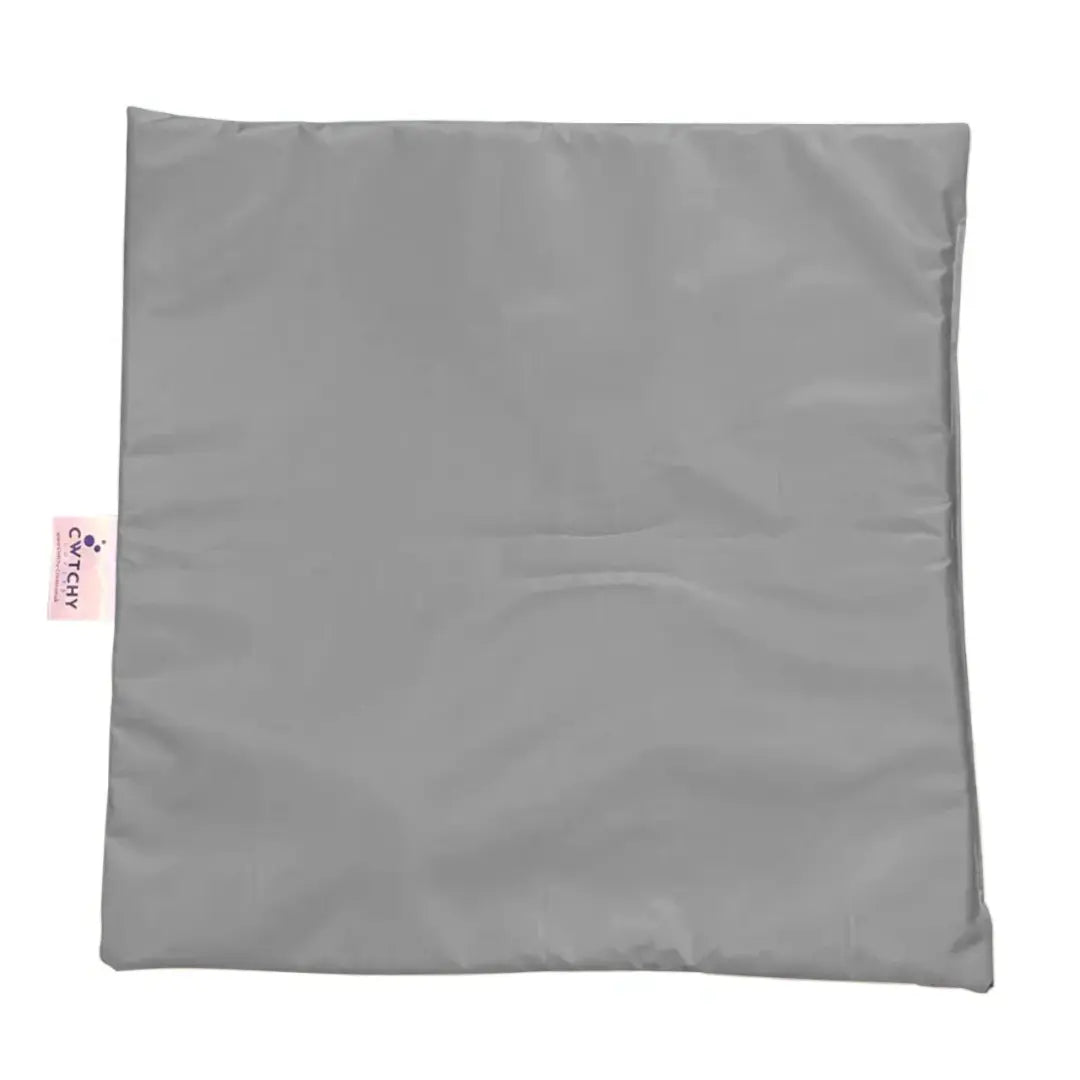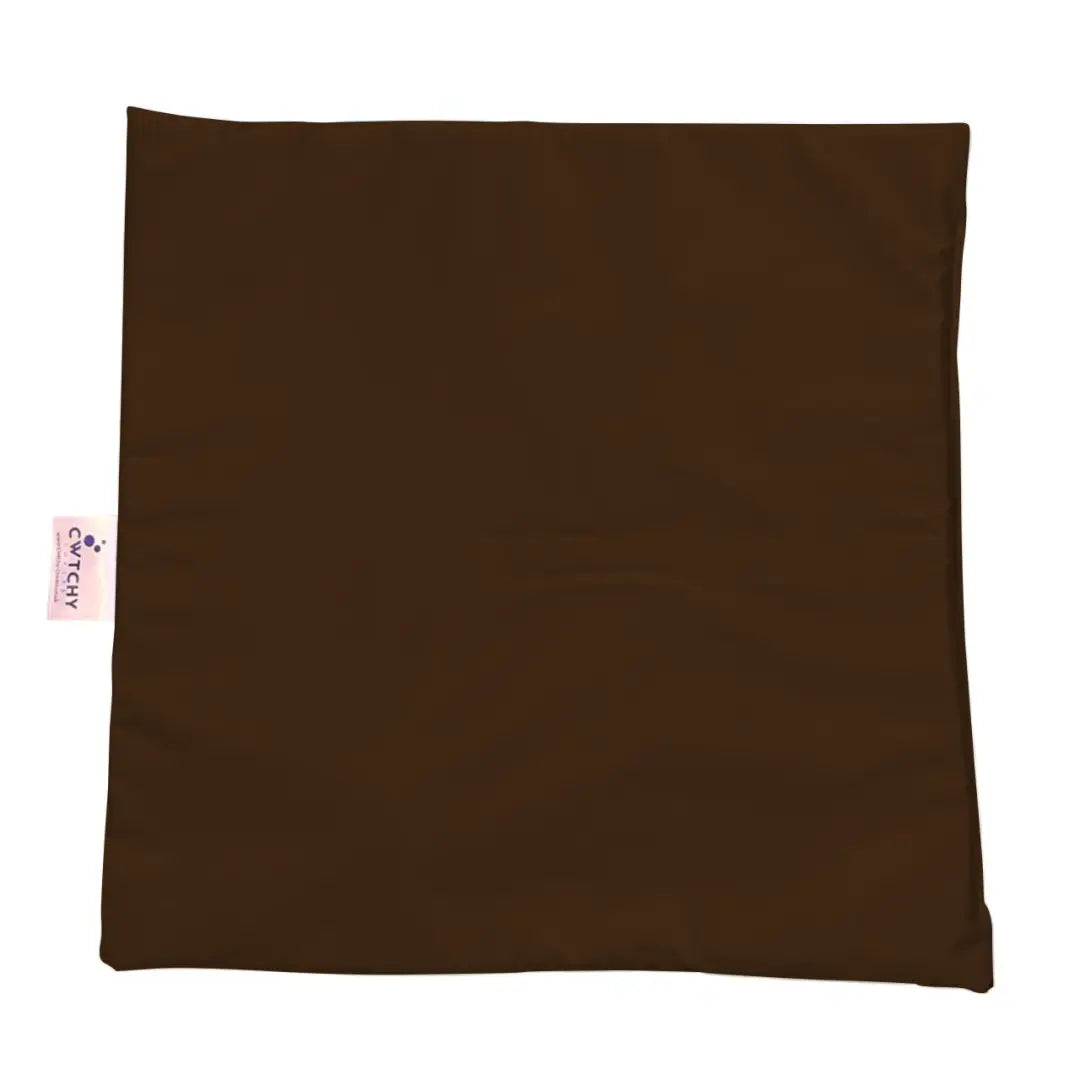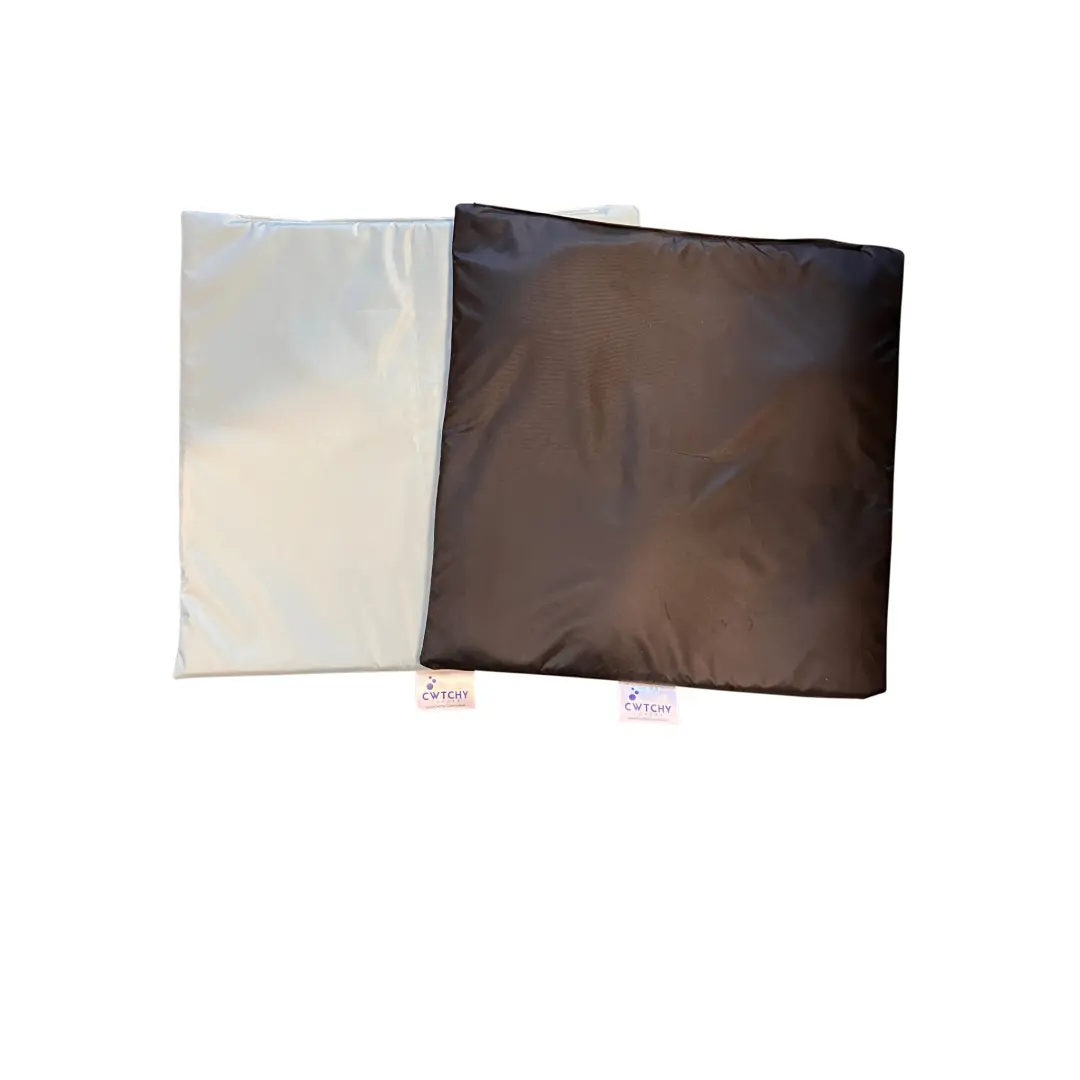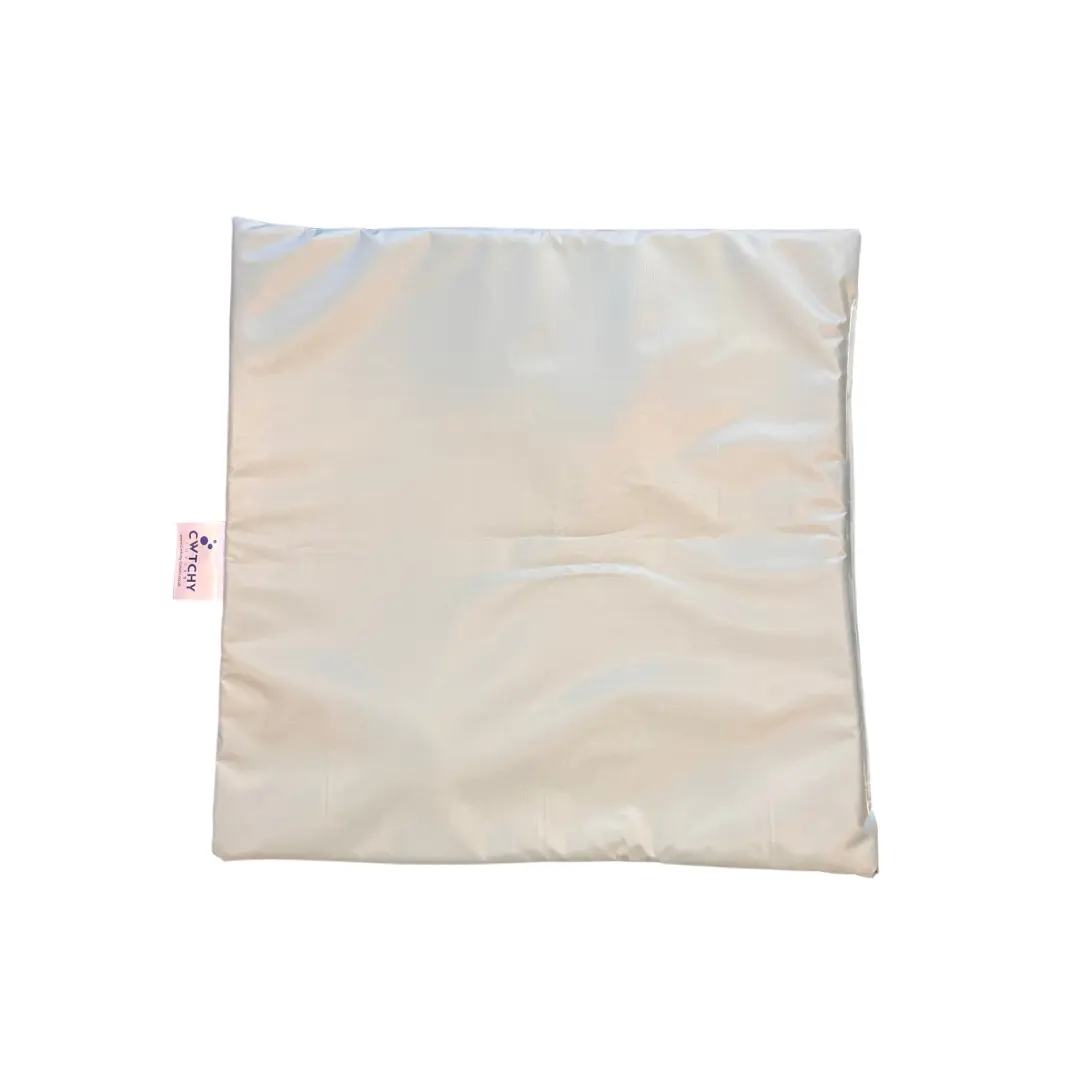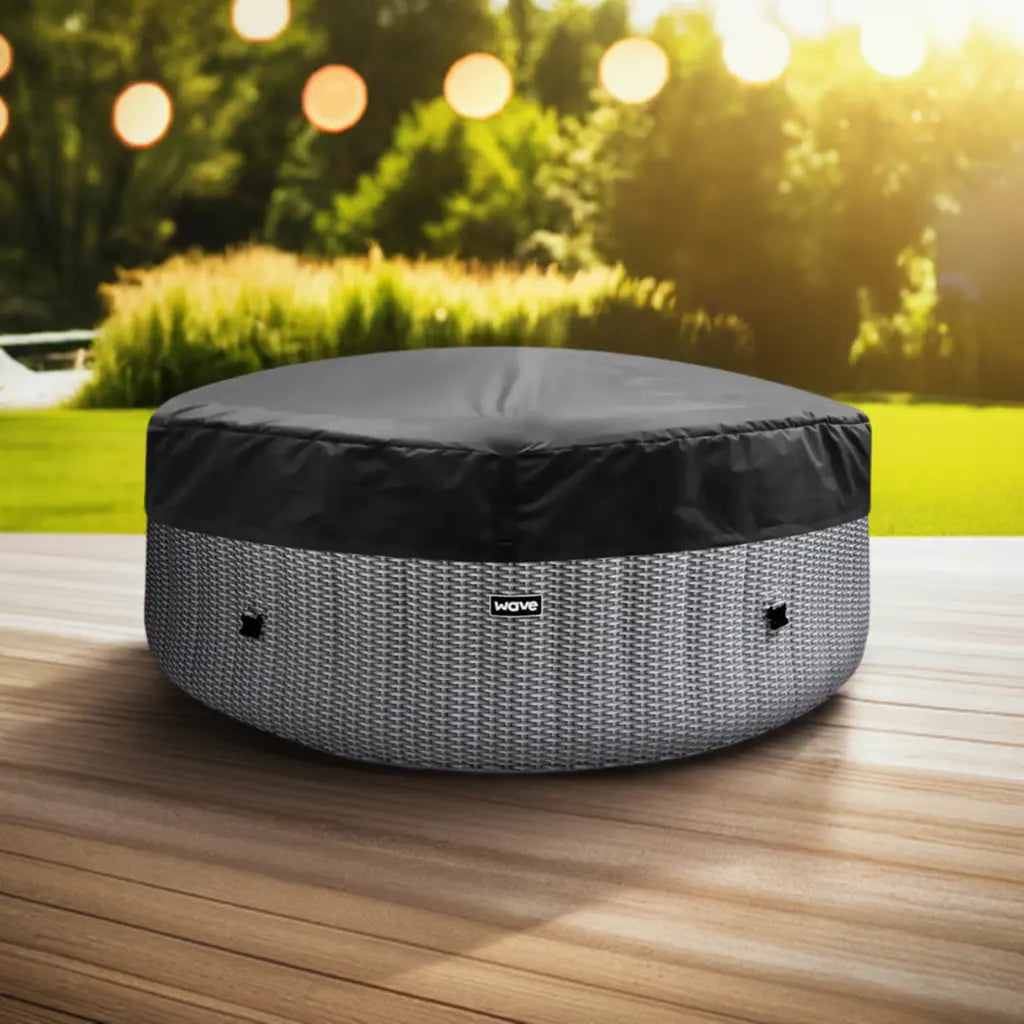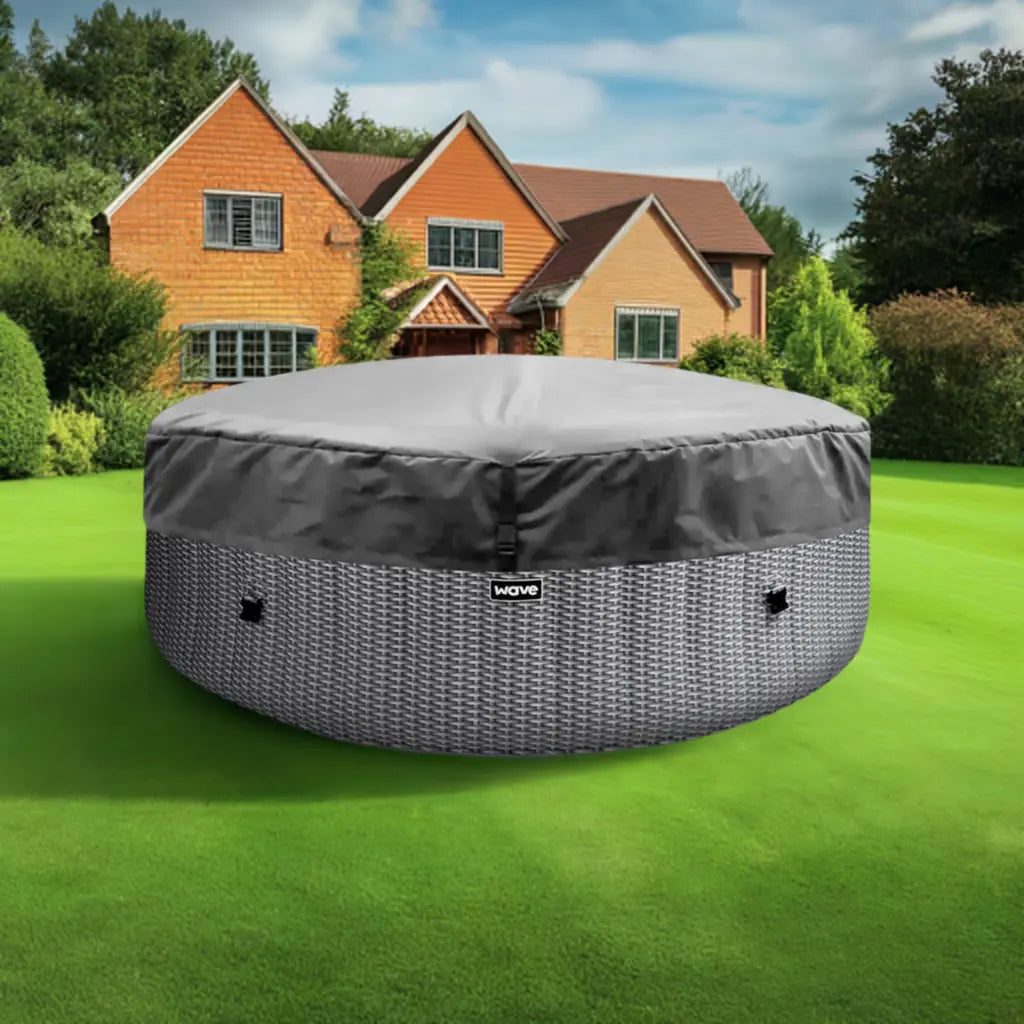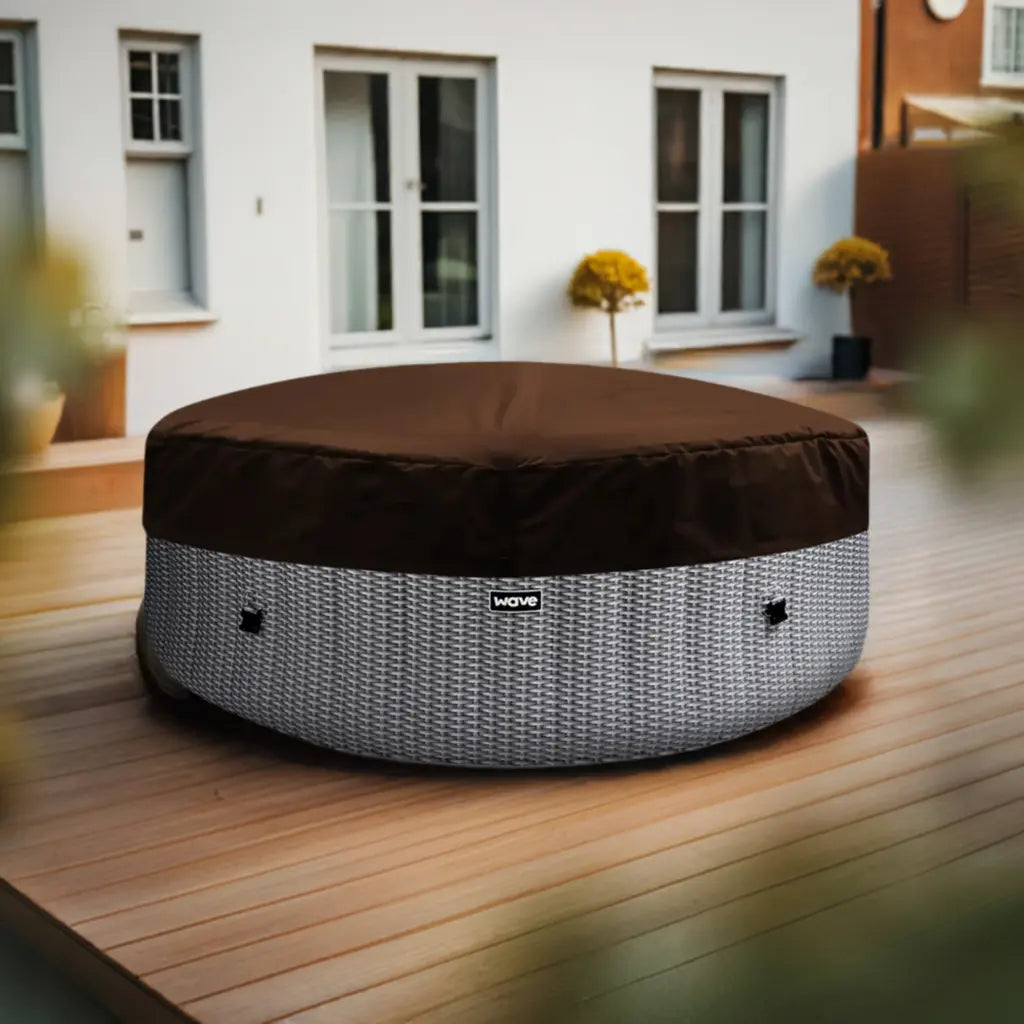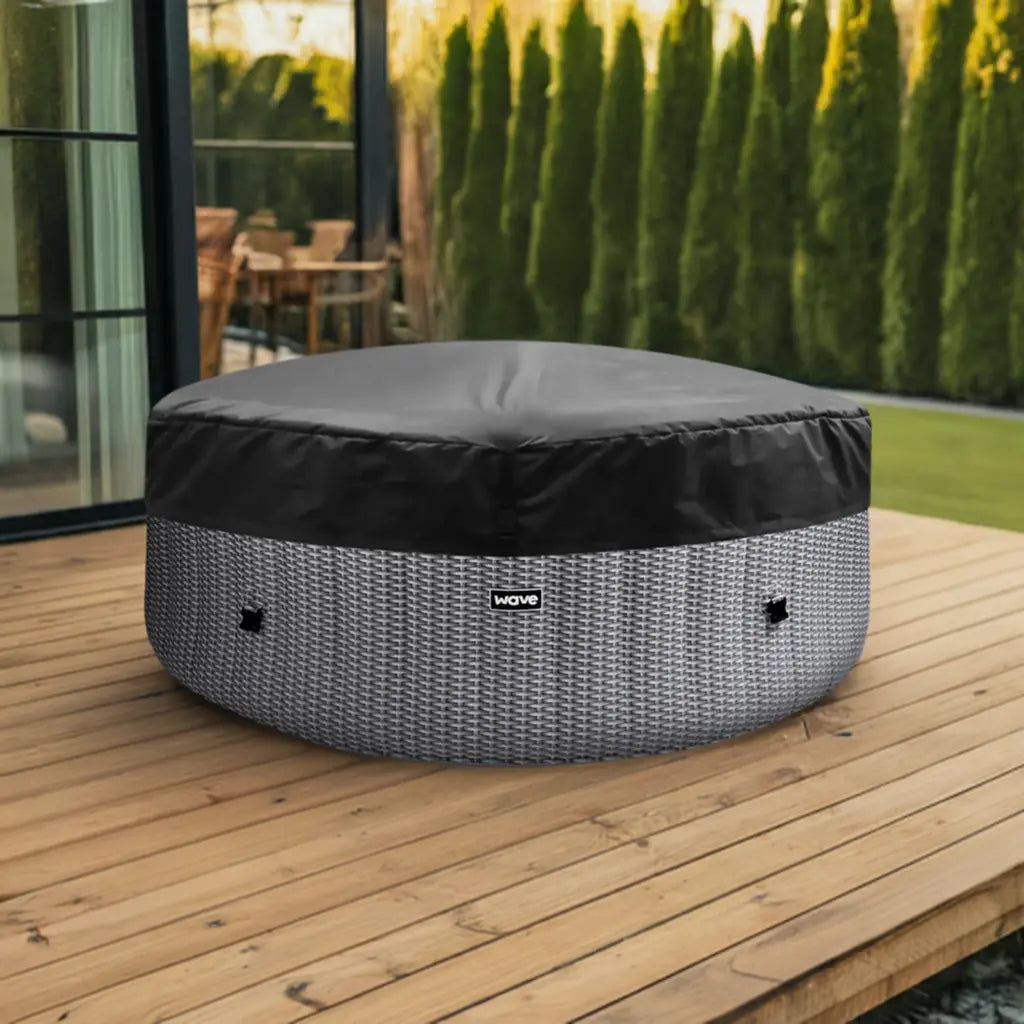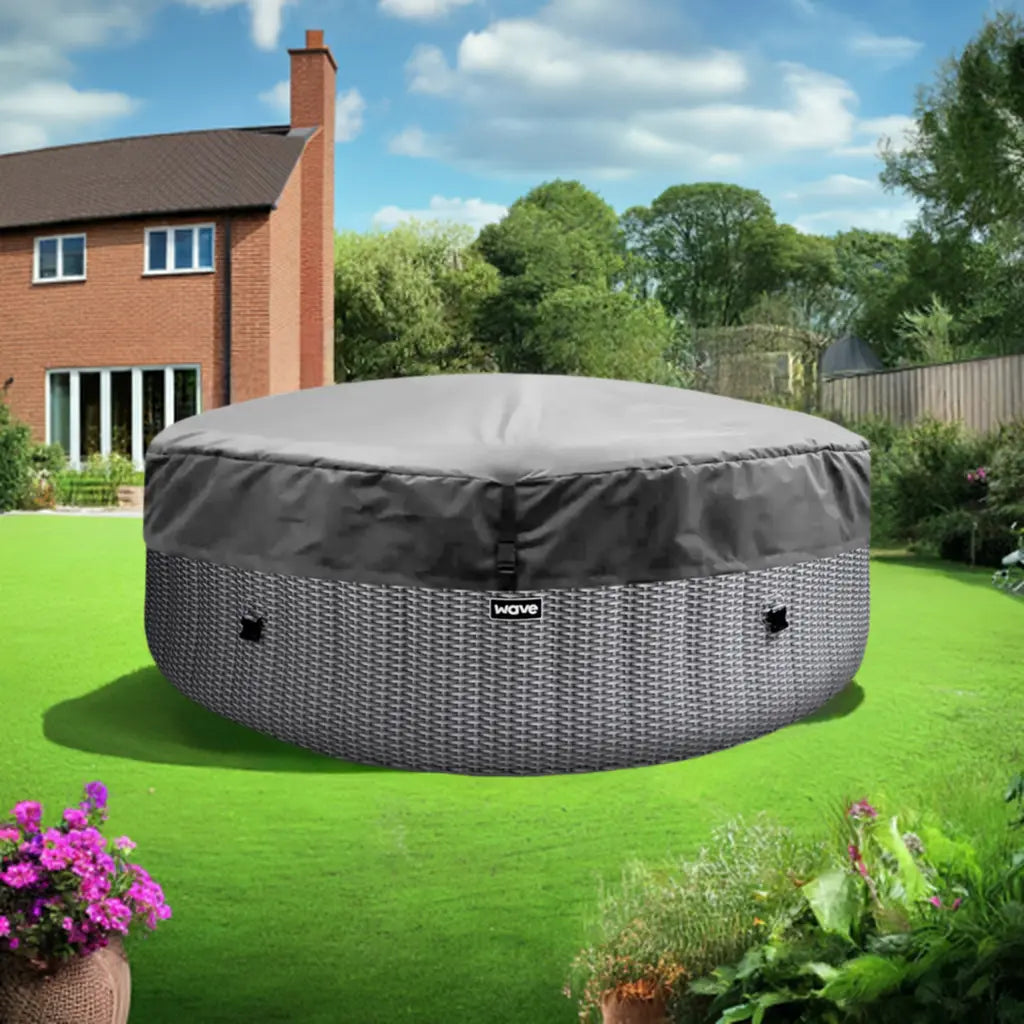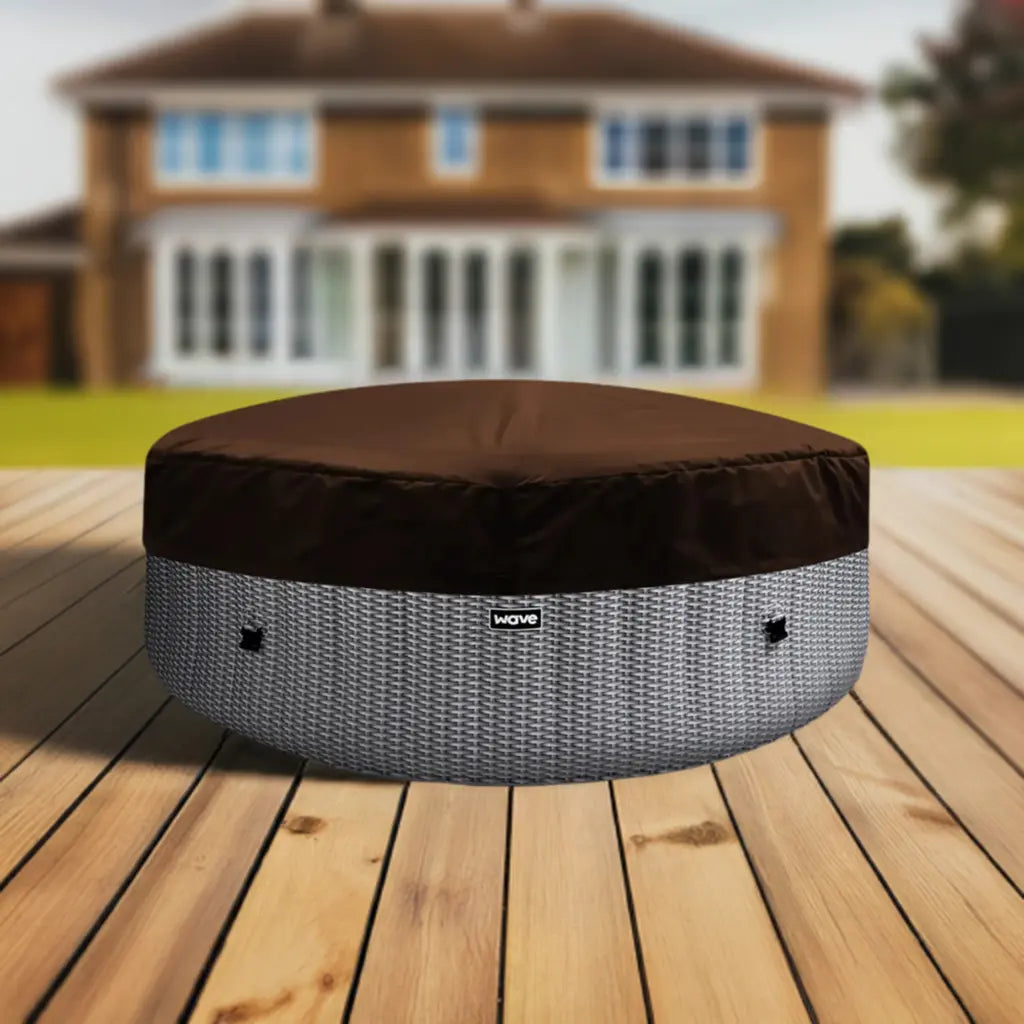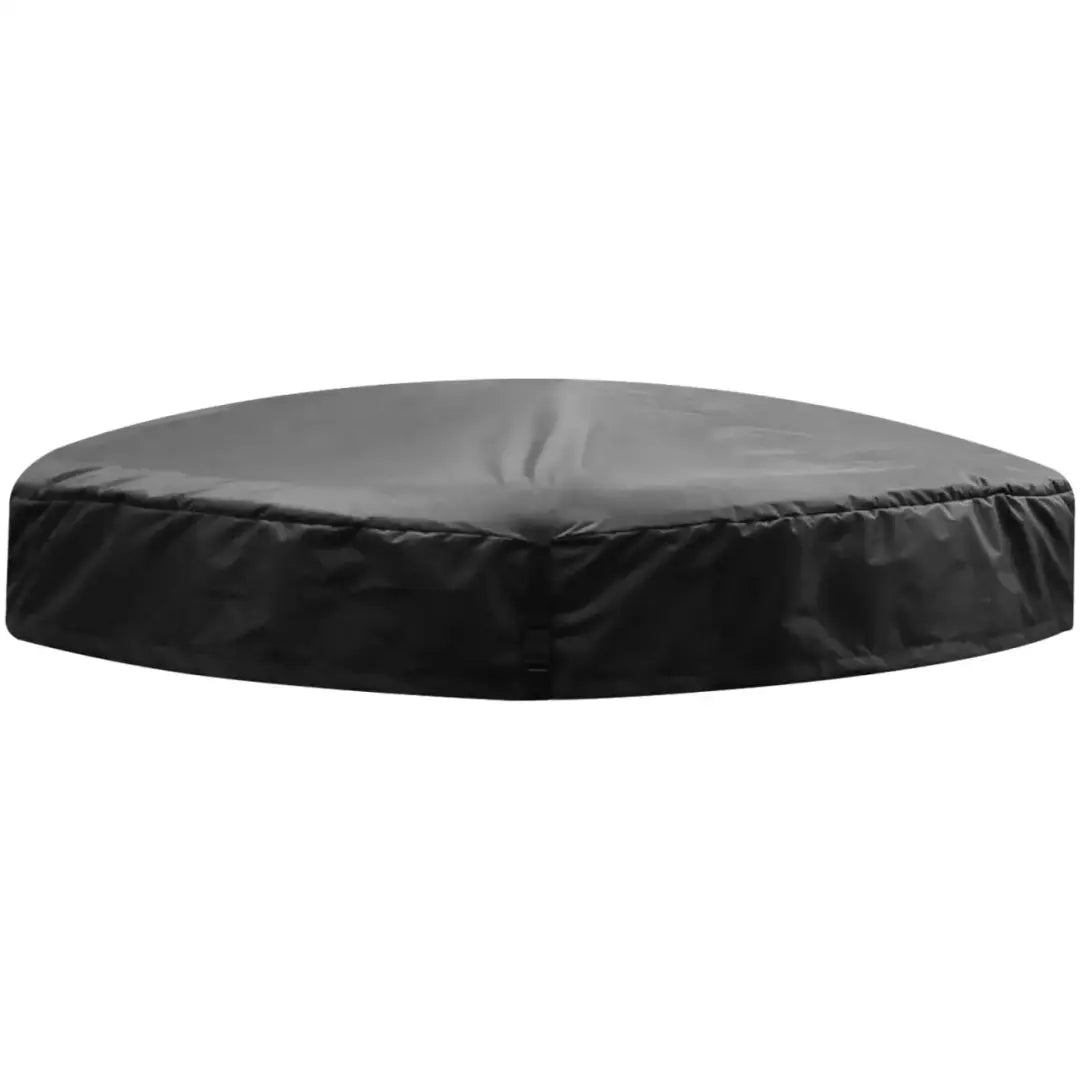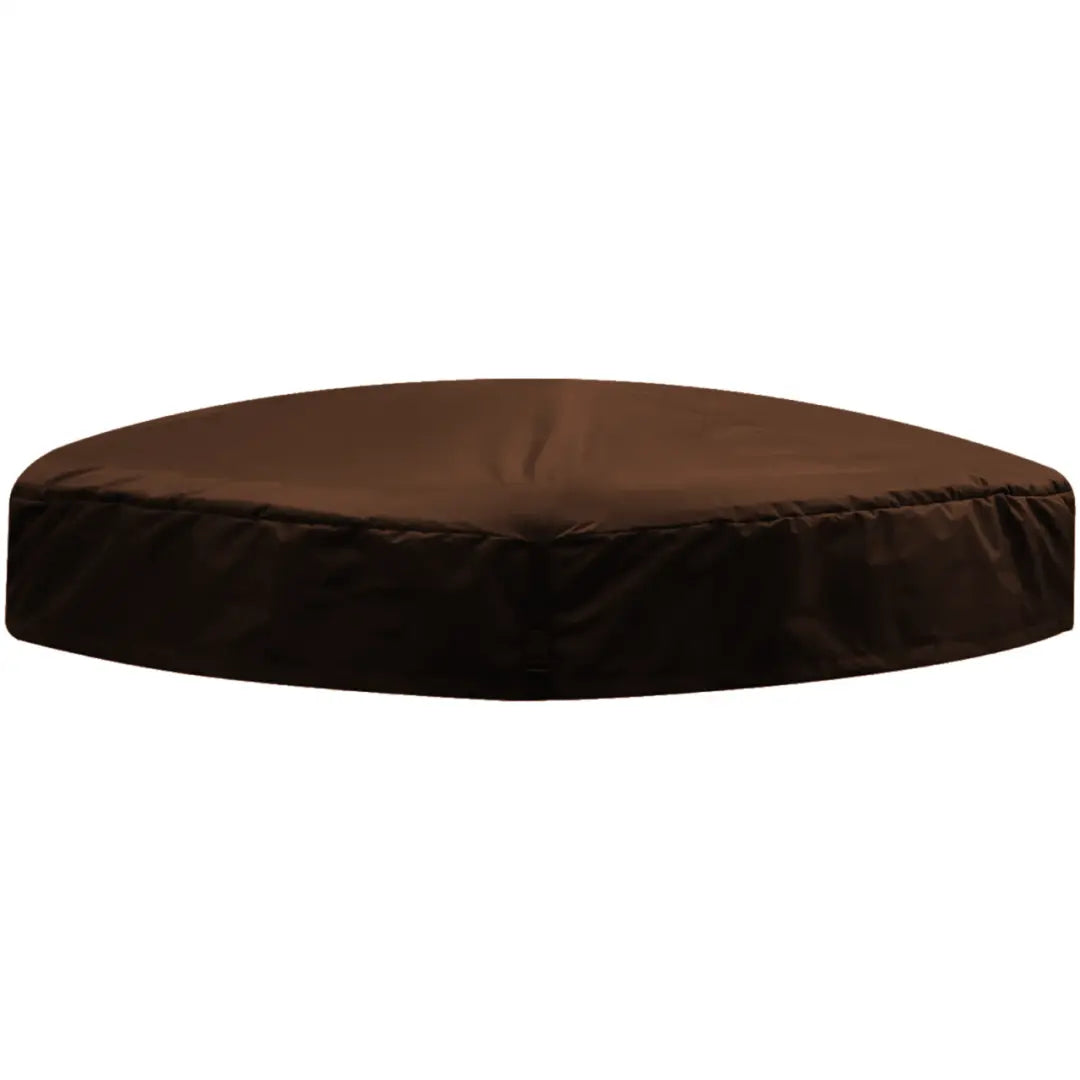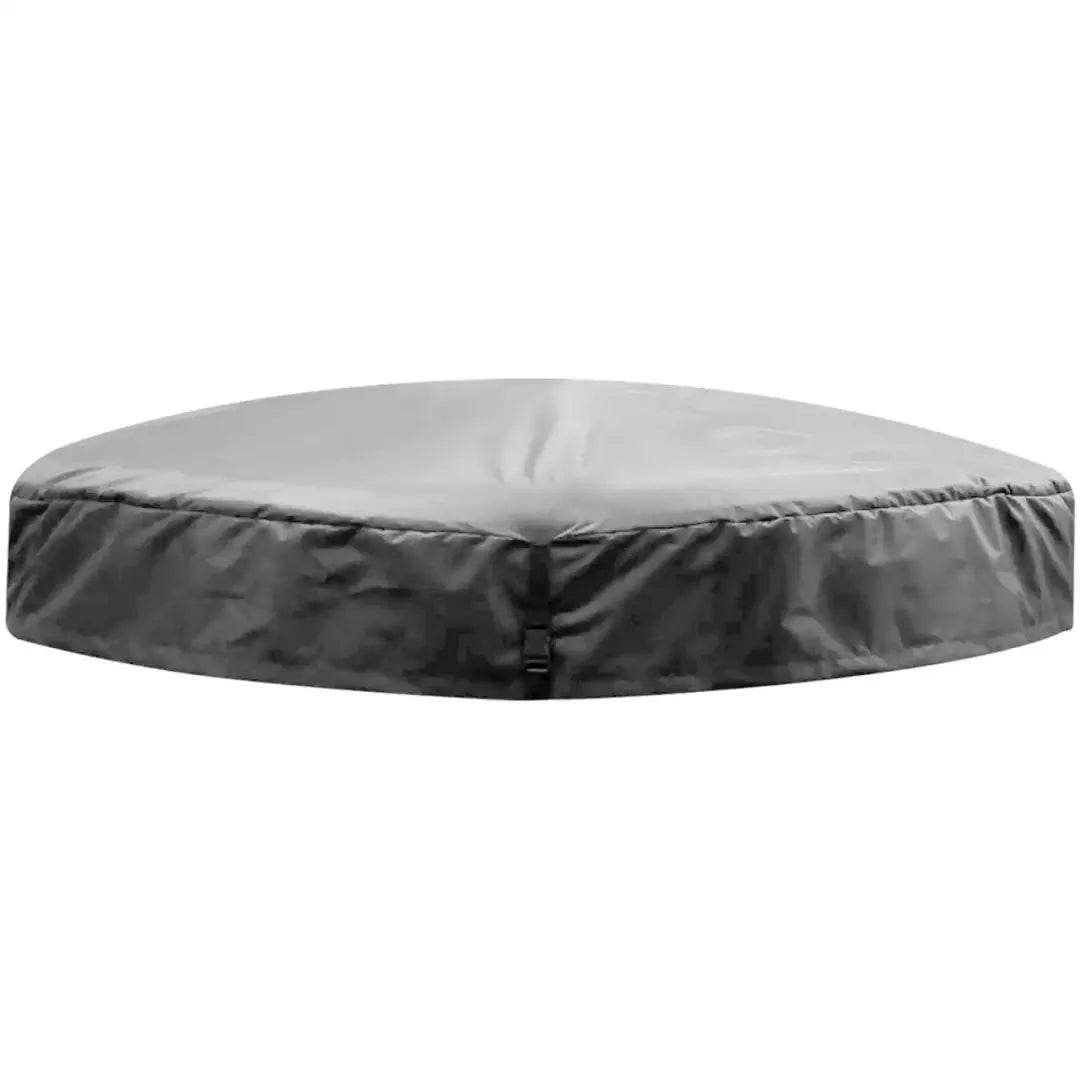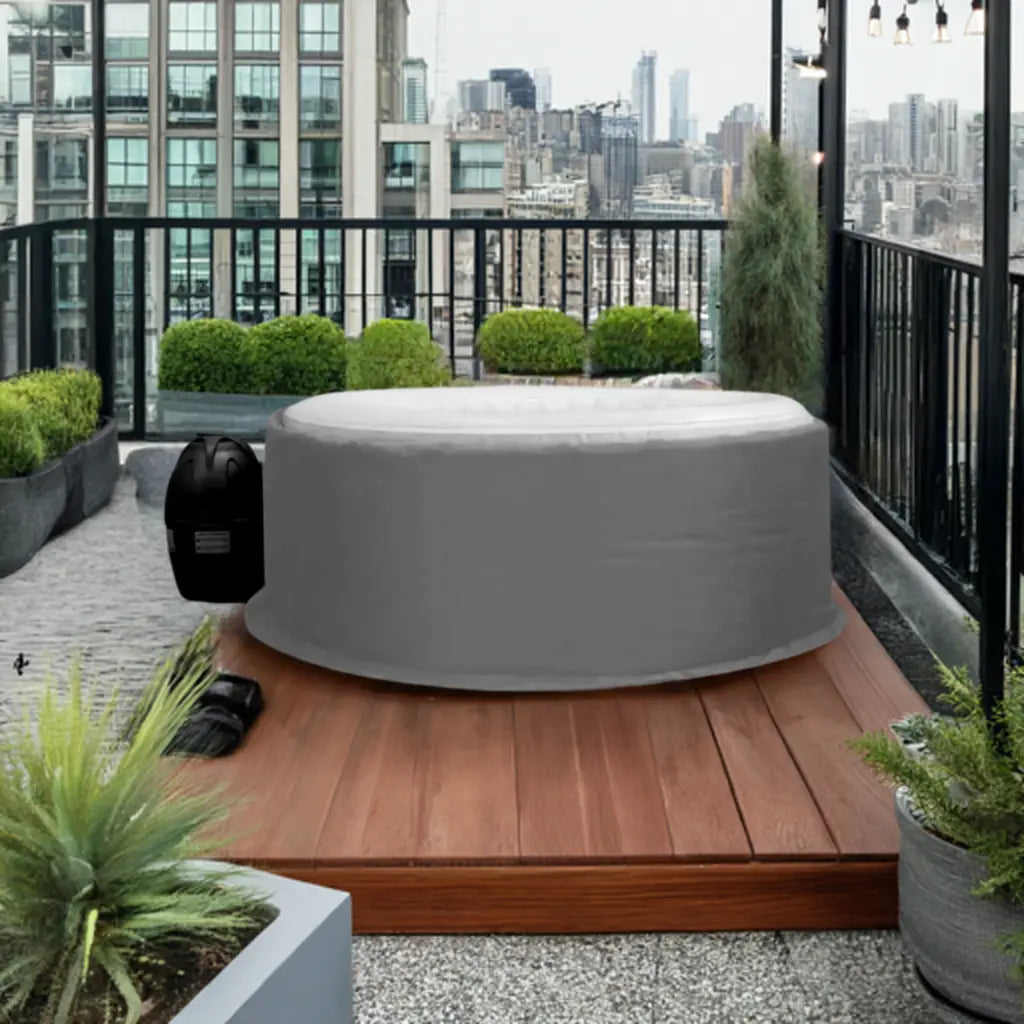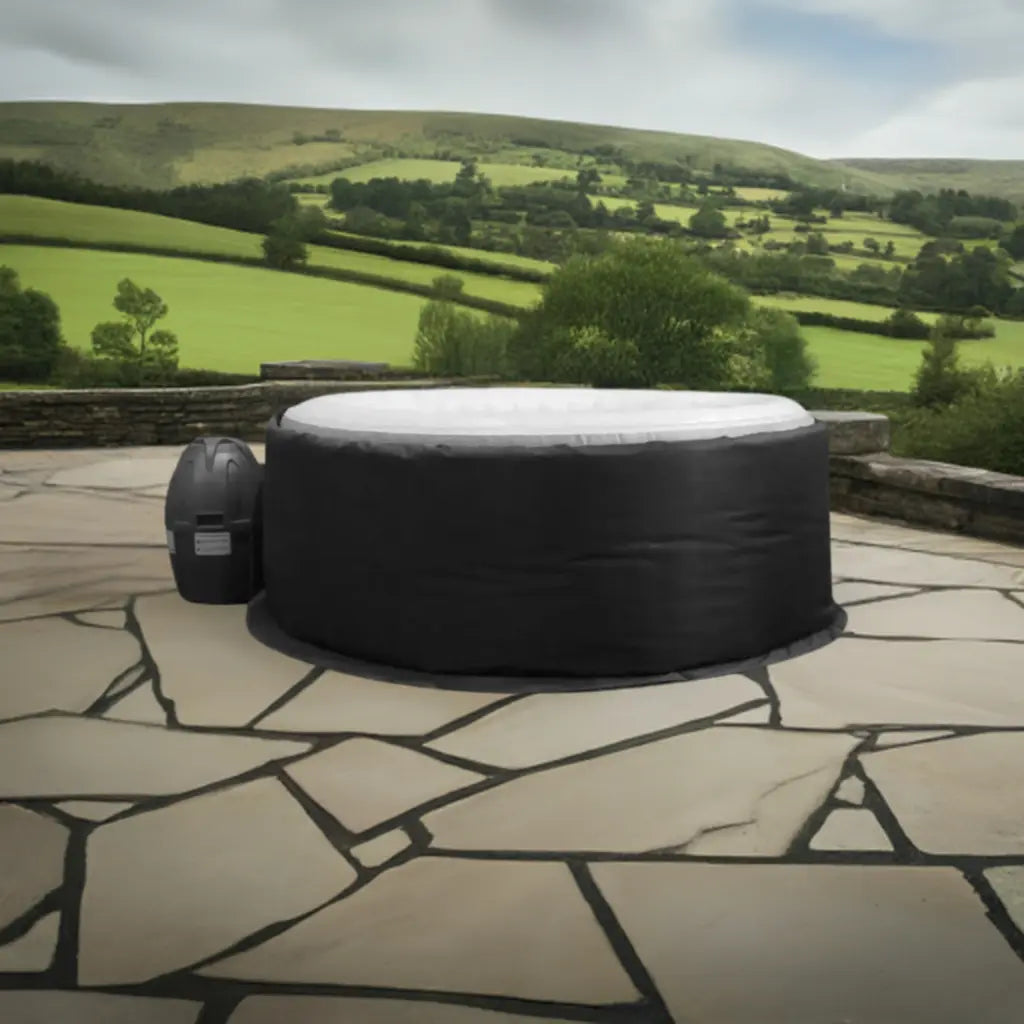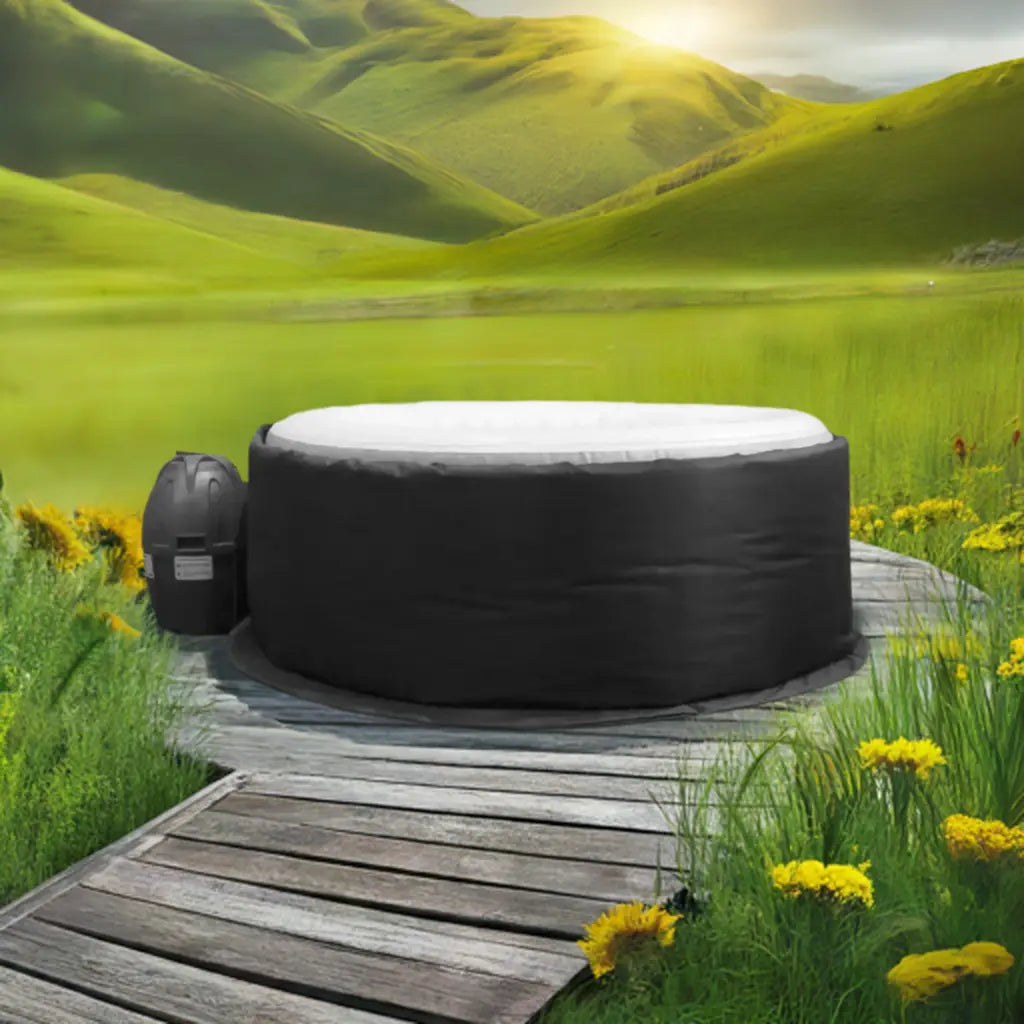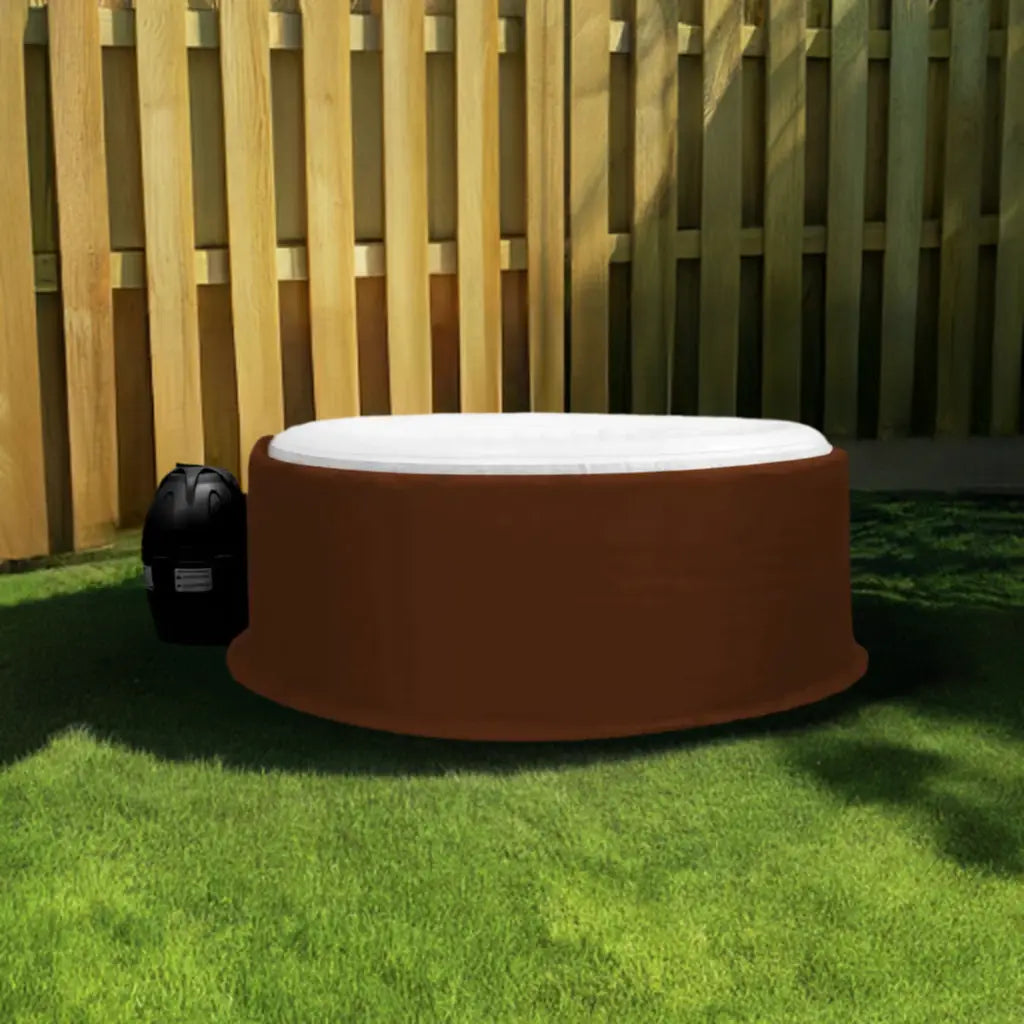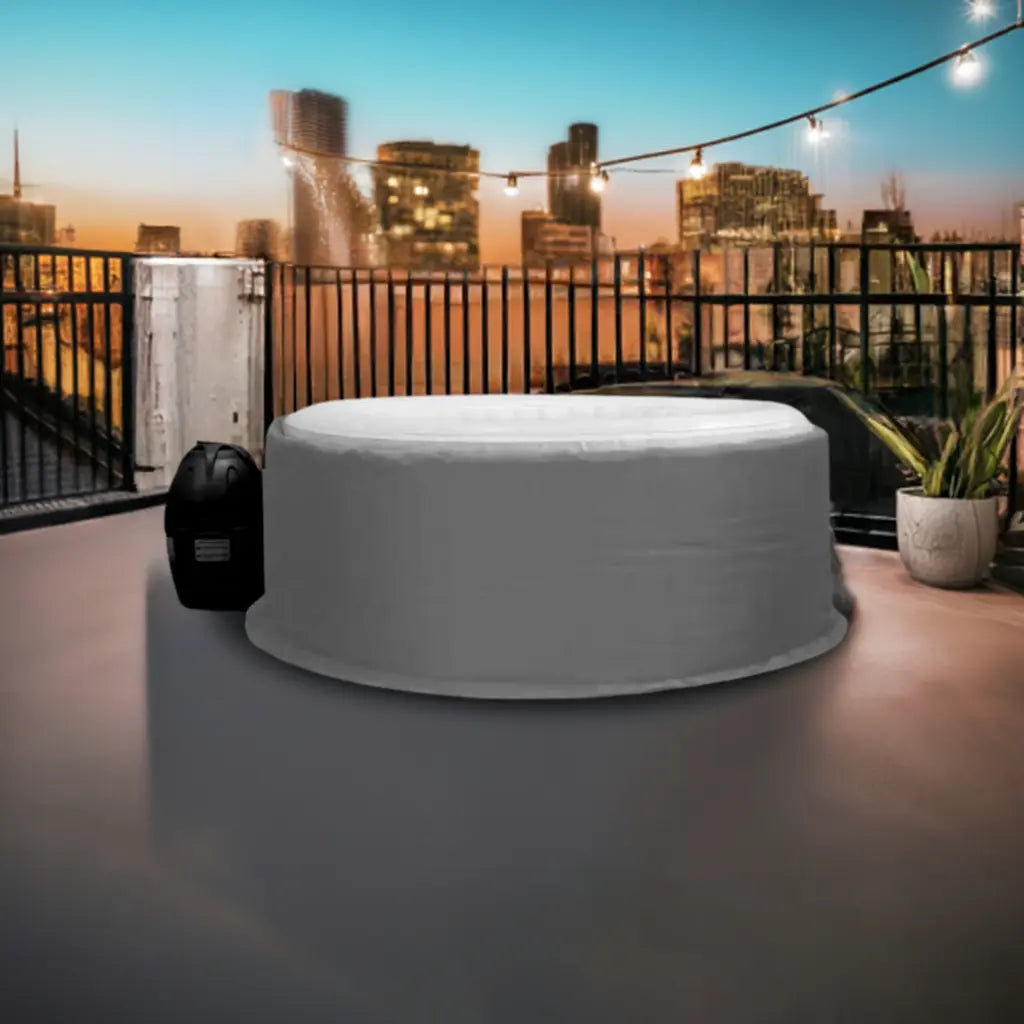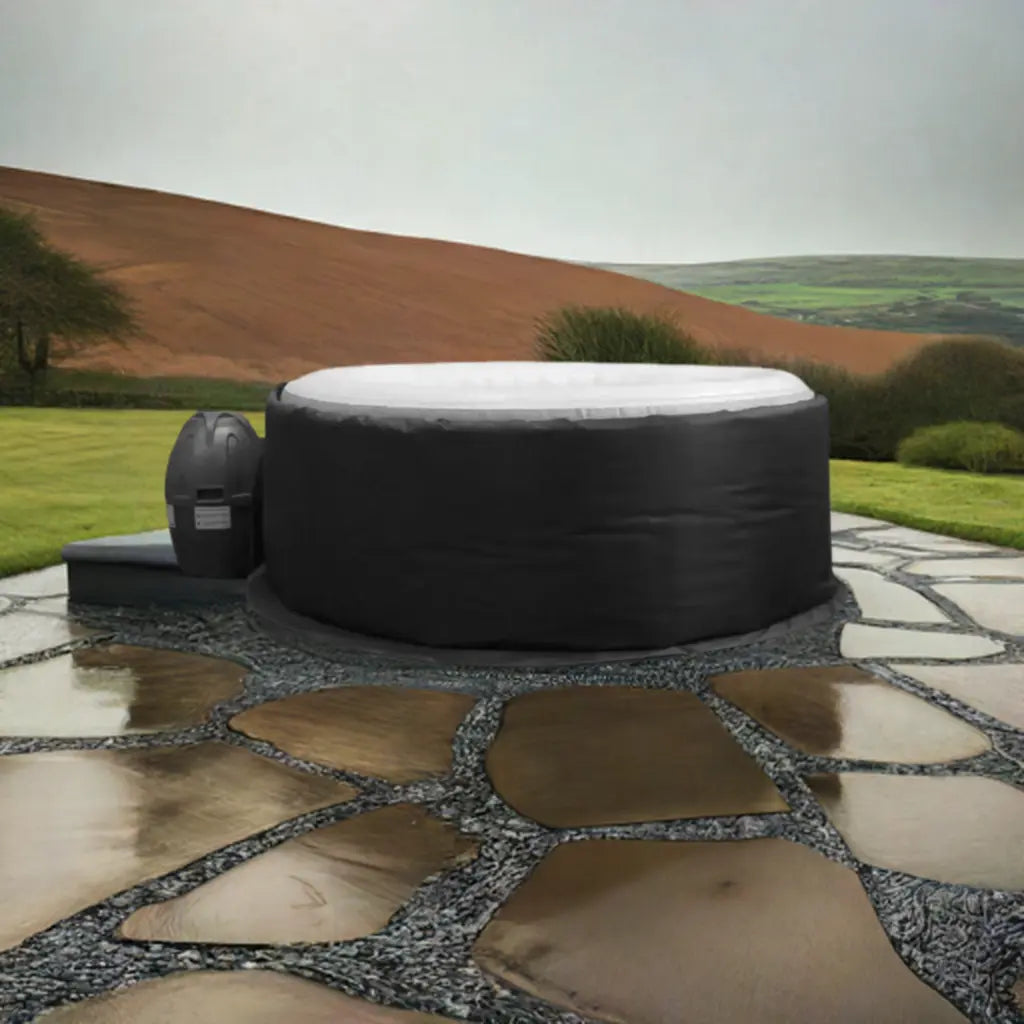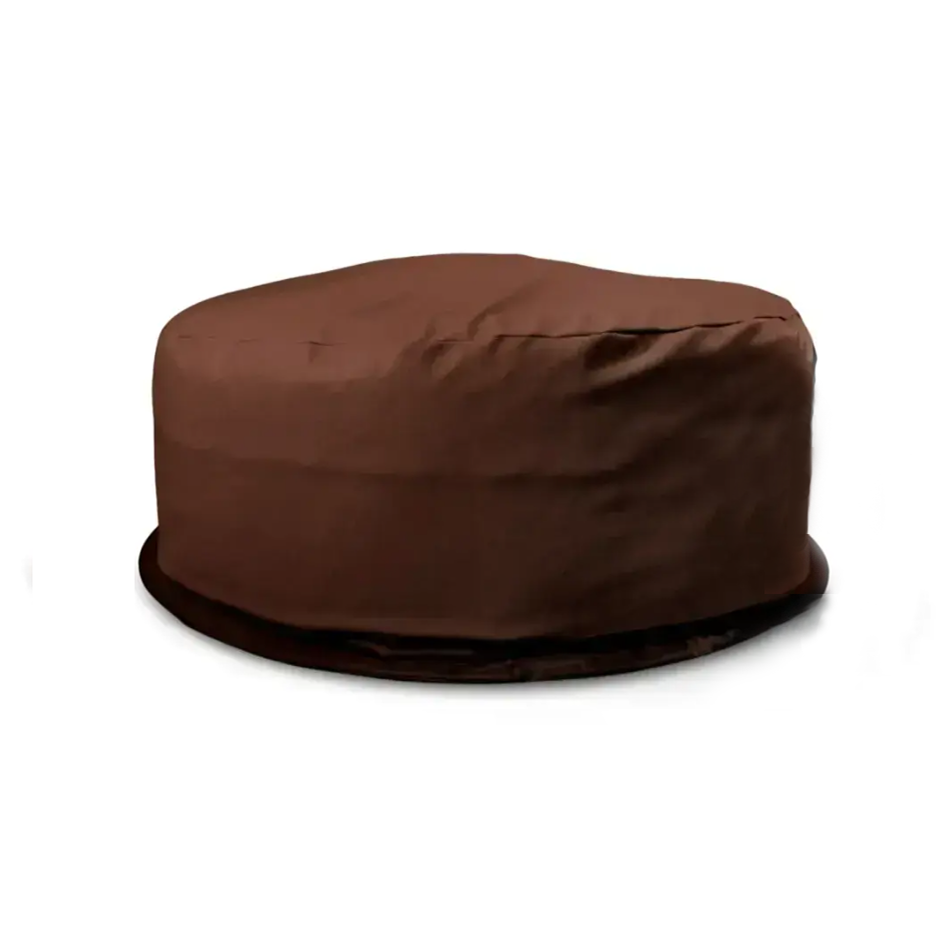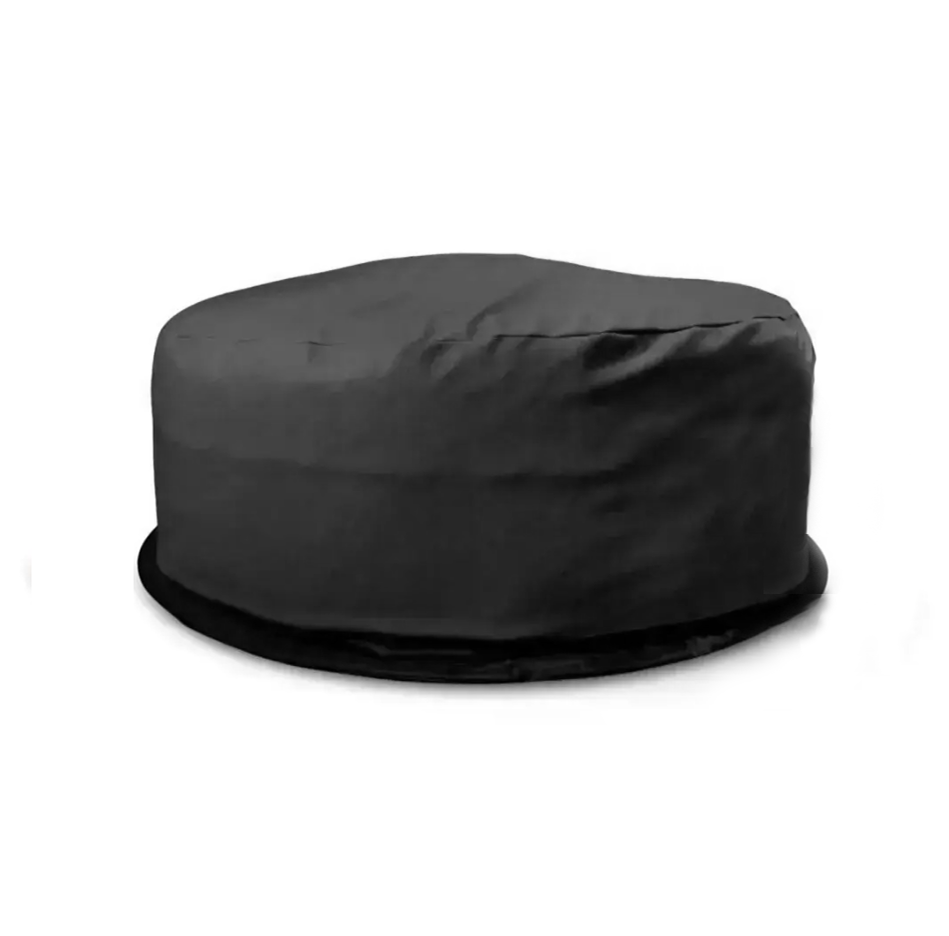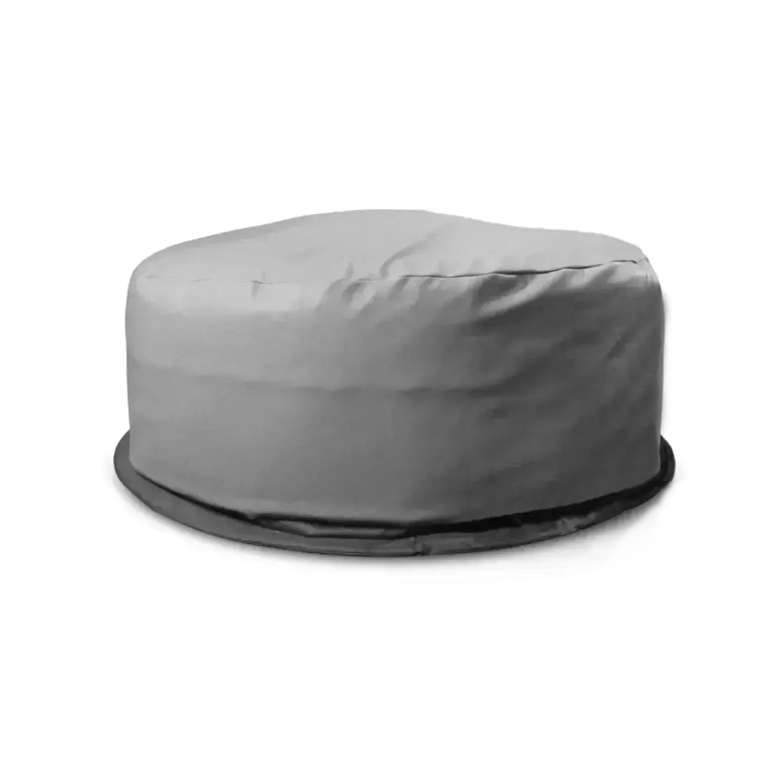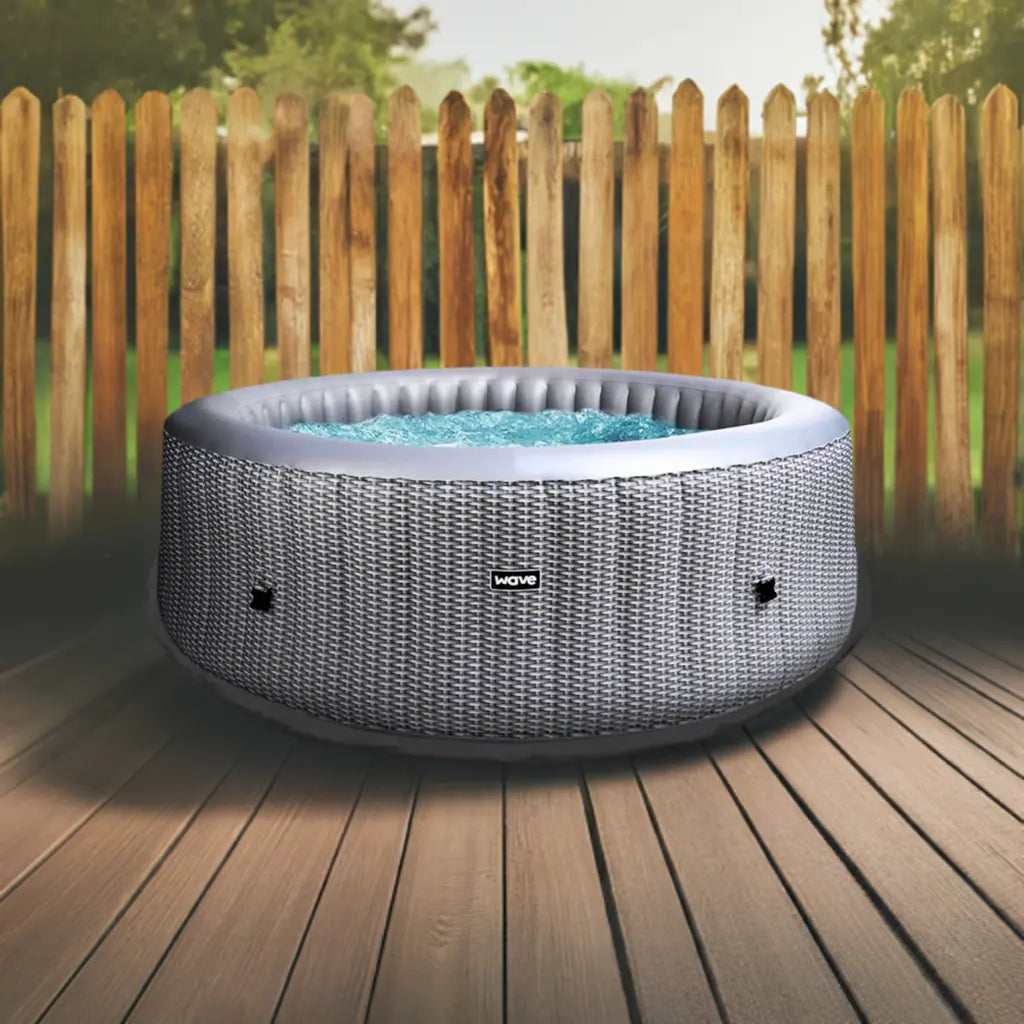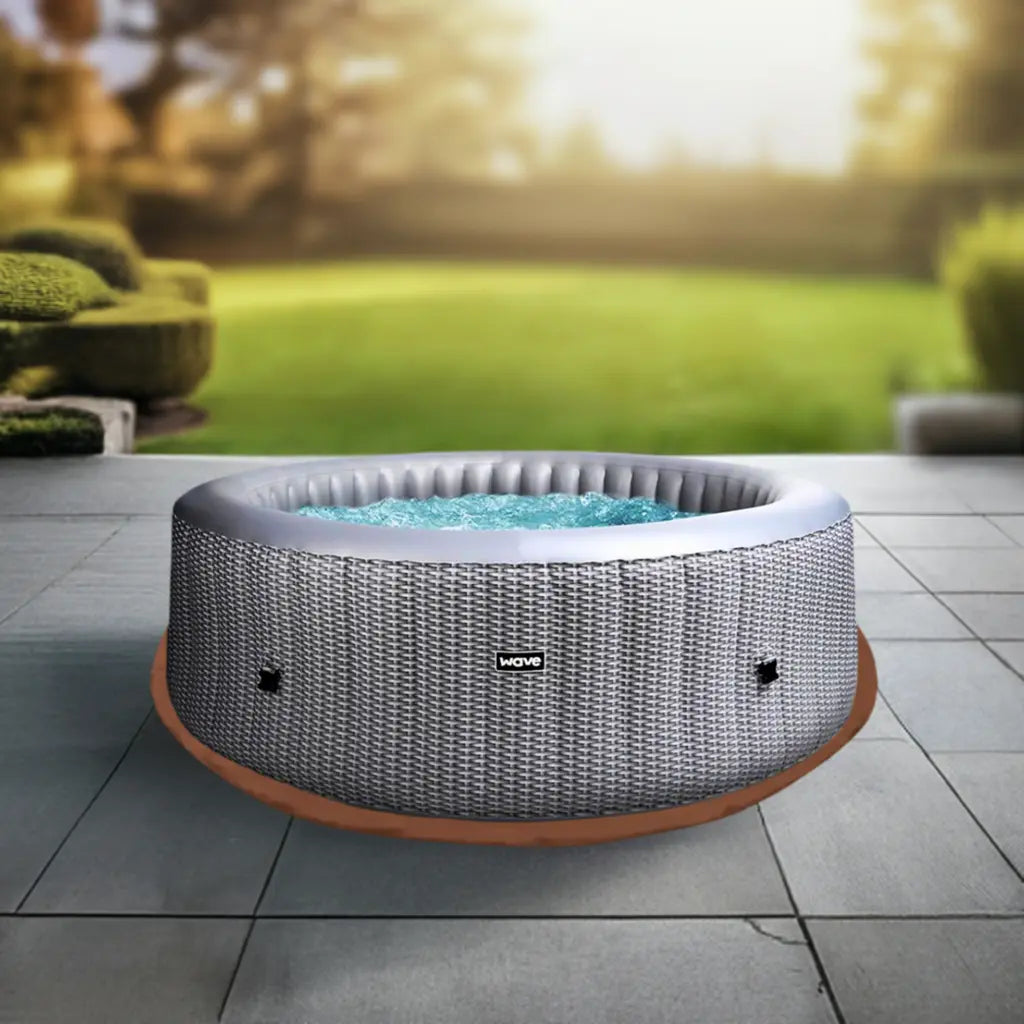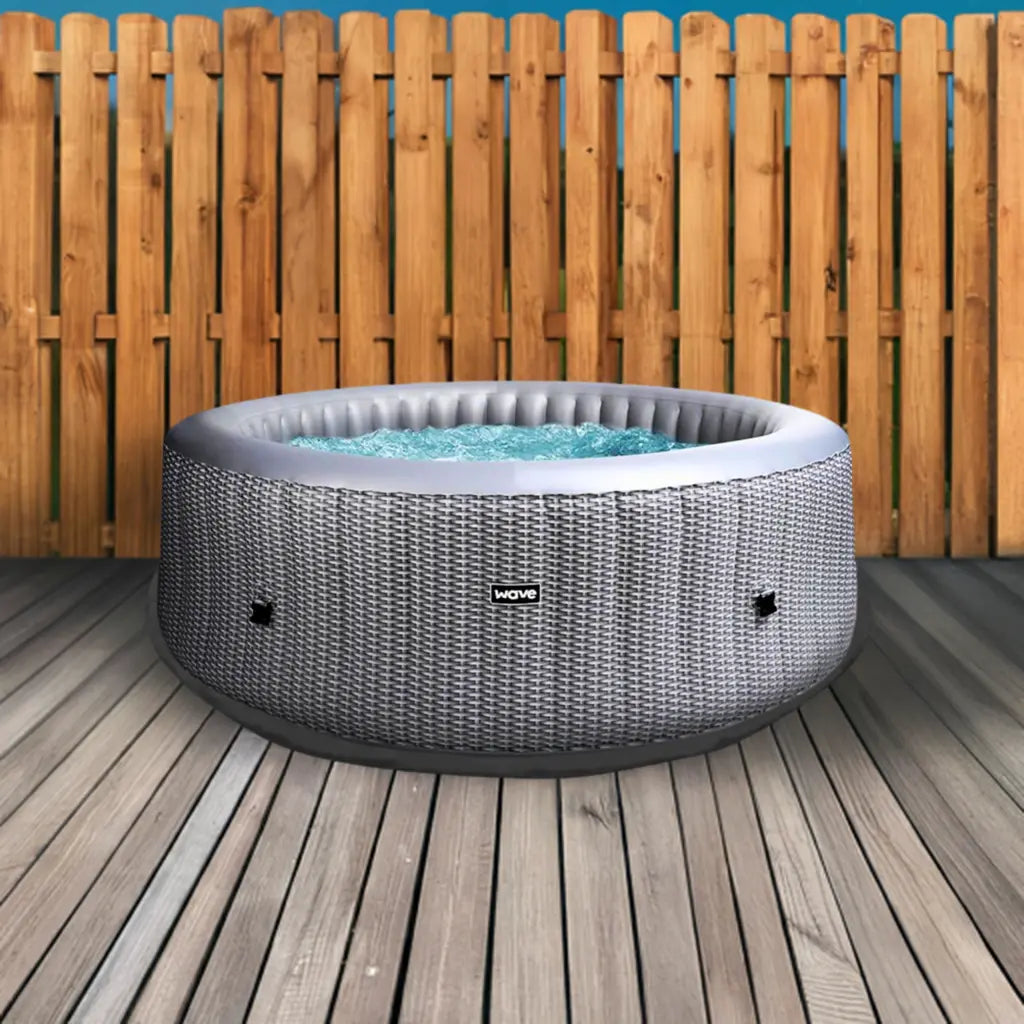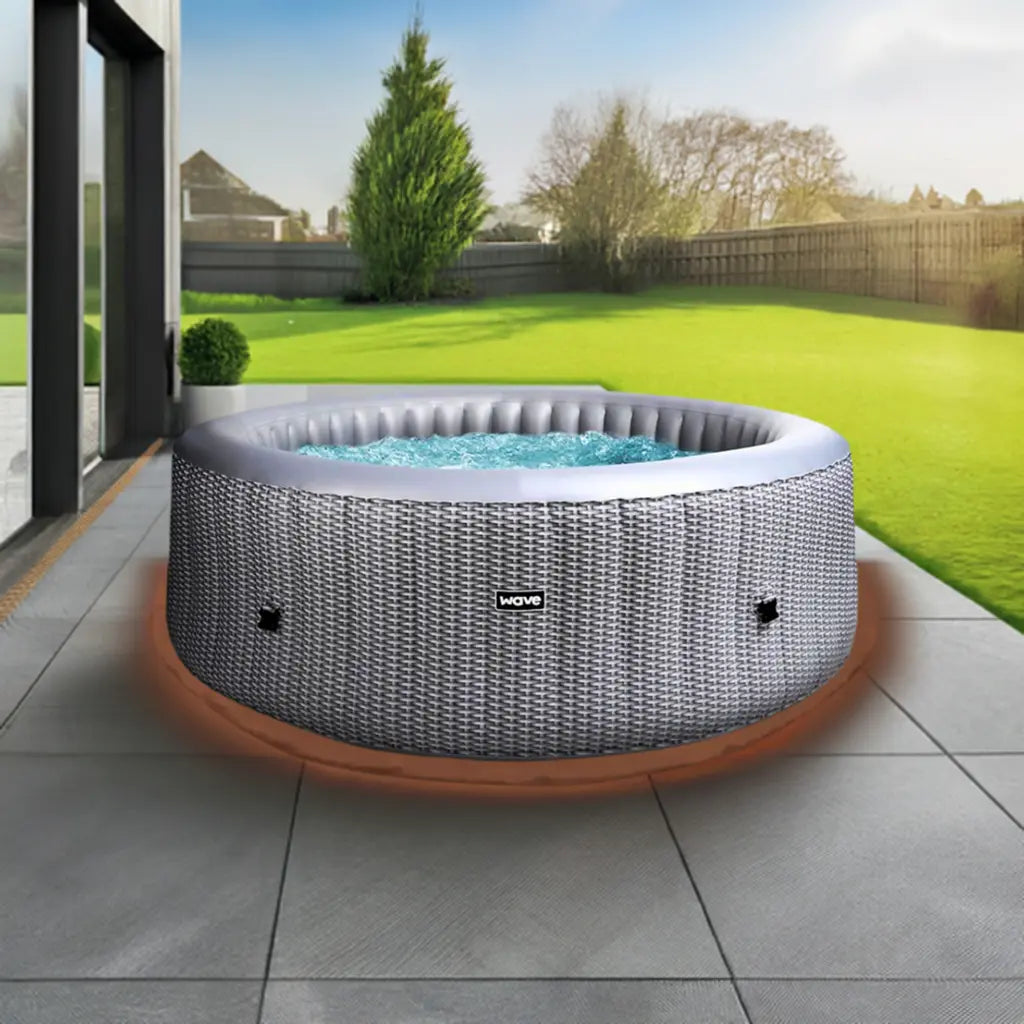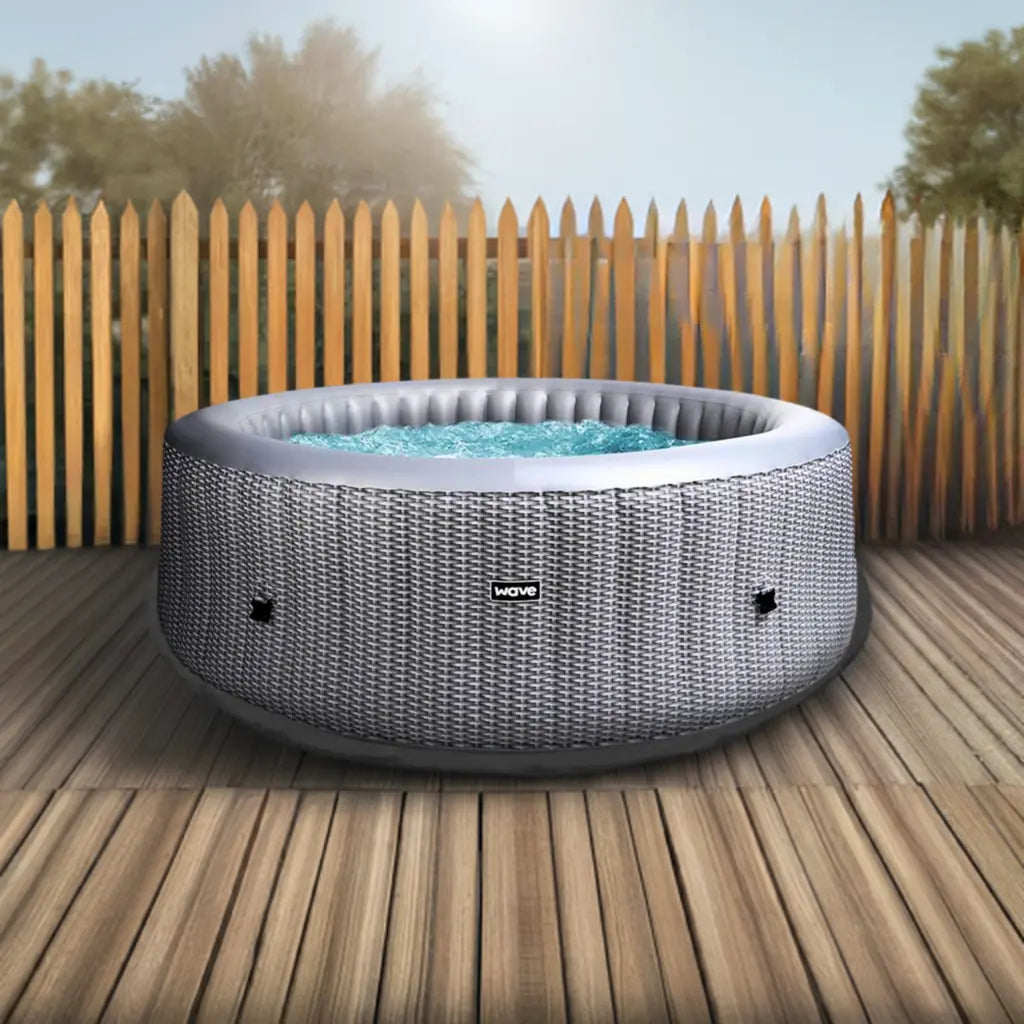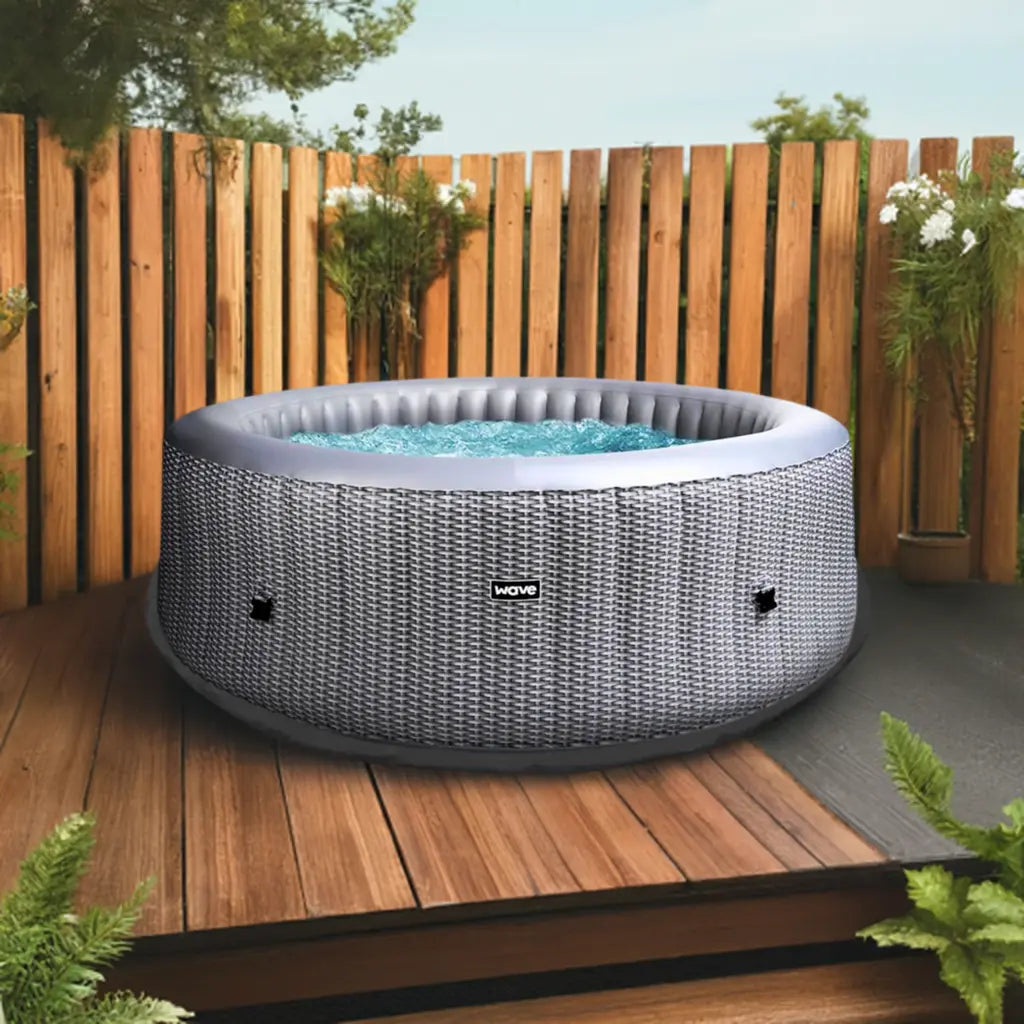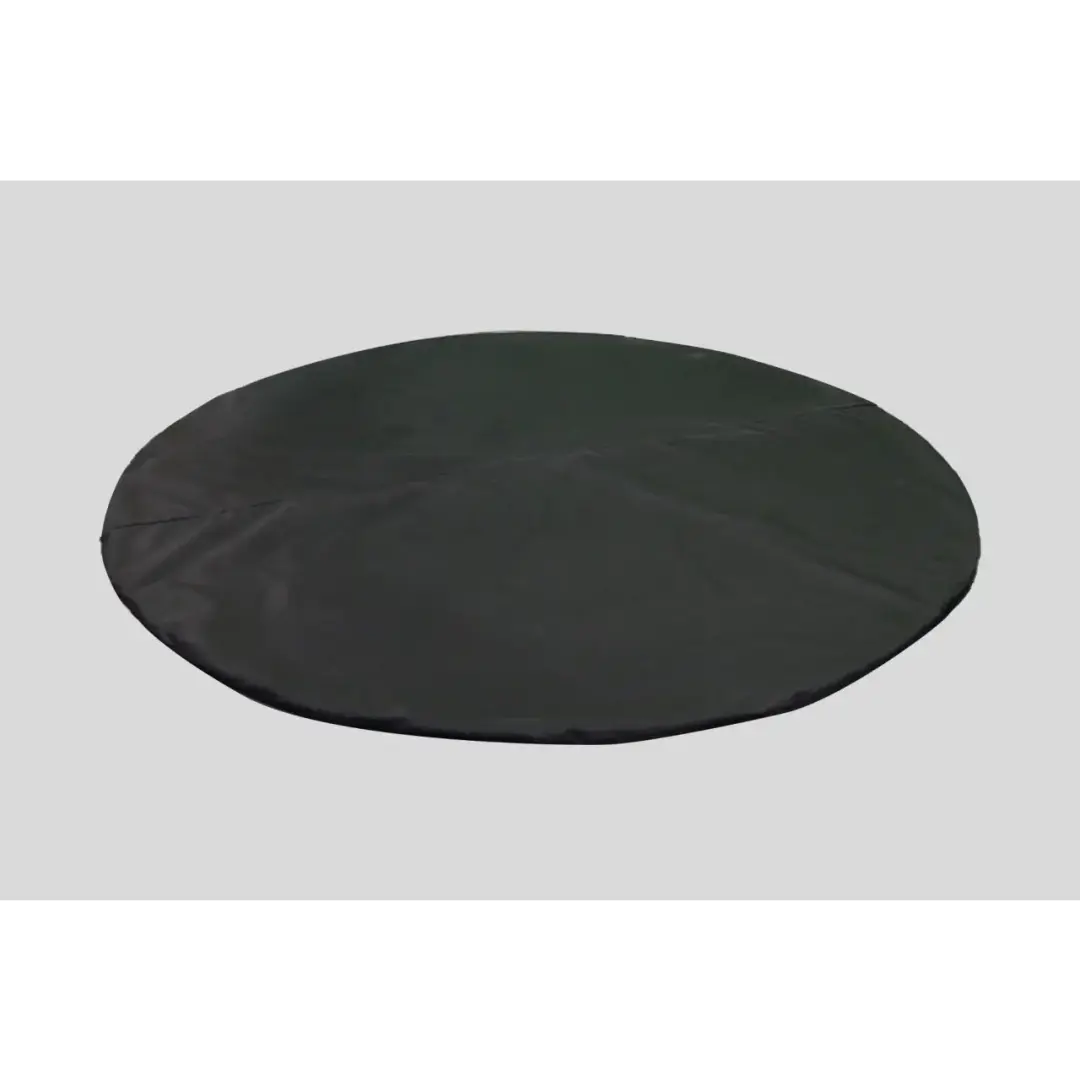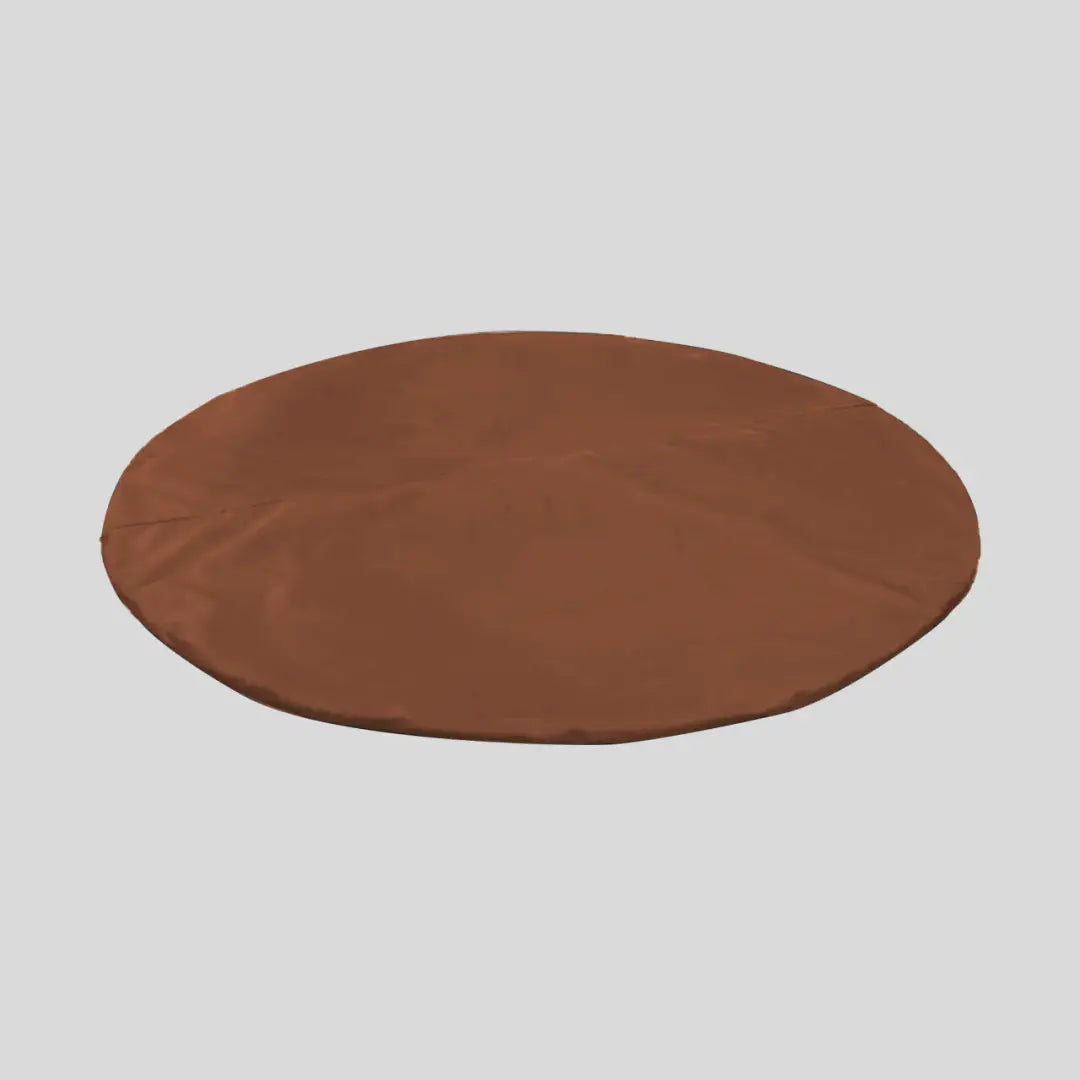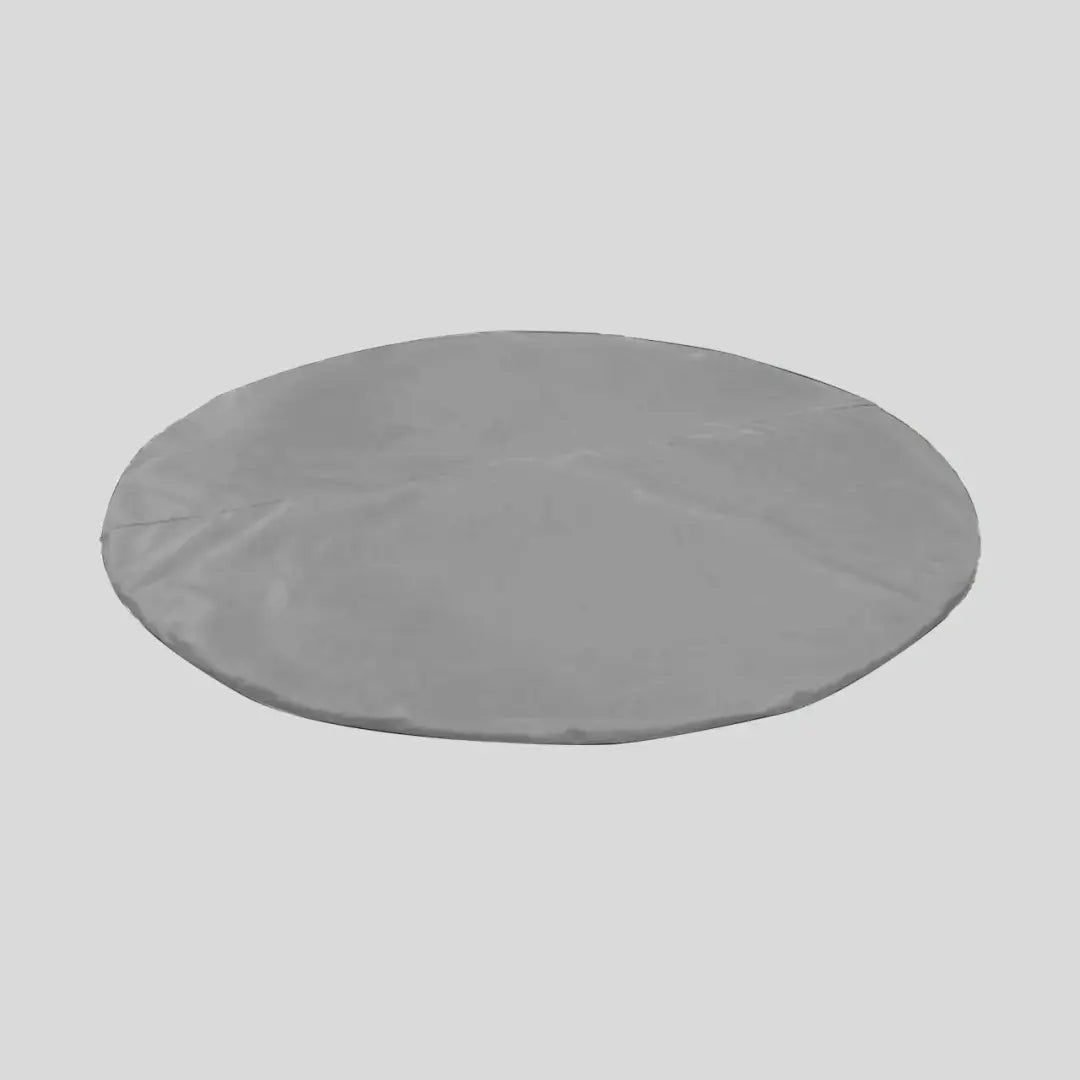"Success is where preparation and opportunity meet." – Bobby Unser. For athletes, getting ready involves much more than just training hard. It also means taking recovery seriously. The secret to top performance often lies in how well you recover. For many, the hot tub is a key tool in this process. The warm, bubbling water does not just relax but rejuvenates both body and mind. Hot tub benefits are not just about feeling good; they are essential for athletes aiming for their best.
Recovery strategies in sports are always improving. The warm hug of a hot tub's hydrotherapy shows the advanced side of resting well. From rugby players to racers, many athletes sing praises of hot tubs. Thanks to science, these praises are now backed by solid evidence. Studies compare different recovery methods, like cooling down with cryotherapy or warming up in hot tubs. They all point to one thing - heat is vital for an athlete's recovery.
An athlete's journey never stops. They constantly push to beat their records and master their sport. That's why having specific recovery plans is so crucial. Hot tubs provide a peaceful space for the body to heal and get stronger. They prepare athletes for even better performances in the future.
Key Takeaways
- Evidence-based recovery strategies such as hot tub therapy are pivotal in sports for enhancing performance.
- Scientific research supports hot tubs as a beneficial post-exercise recovery tool for athletes.
- Heat therapy within hot tubs promotes muscle repair and can modulate exercise-induced muscle damage.
- Controlled hydrotherapeutic warmth is proven to aid regeneration and alleviate muscle soreness.
- Mental wellness and injury prevention are among the holistic advantages attributed to hot tub use.
Understanding Hydrotherapy and Its Advantages for Professional Athletes
Exploring hydrotherapy shows how it helps professional athletes recover better. It uses water's healing power to improve well-being and boost athletic performance.
Principles and Mechanisms of Hydrotherapy
The magic of hydrotherapy is in its use of water. This can be hot, cold, steam, or ice. It eases muscle soreness, speeds up recovery, and helps prevent injuries. Water's buoyancy lessens the impact of gravity. This makes movements softer and safer. It also supports the health of muscles and joints.
Water's warmth can relieve pain and relax muscles. This is key for an athlete's rehab.
Hydrotherapy vs. Traditional Recovery Methods
Hydrotherapy is different from other recovery methods. It is gentle and natural. Unlike ice baths and compression therapy, it helps both body and mind.
| Recovery Method | Advantages | Considerations |
|---|---|---|
| Hydrotherapy | Faster recovery, reduced muscle soreness, pain management, injury prevention | Needs special facilities |
| Ice Baths | Less inflammation, less muscle damage after workouts | Can feel cold, risk of getting too cold |
| Compression Therapy | Better blood flow, quicker removal of waste from muscles | Not right for every injury |
Using hydrotherapy for athletes is great. It balances recovery and prevention. It's not only for recovery, but for ongoing care. It also cuts down on muscle soreness and is a great way to prevent injuries.
Optimizing Muscle Recovery with Heat Therapy
Heat therapy has become essential for athletes looking to boost their performance. It helps with efficient muscle recovery. By using heat, muscle repair can happen faster, while also reducing the chance of more muscle damage. We'll explore how warmth is key to recovering athletic muscles. It's also crucial for keeping tissues safe during the recovery.
The Role of Warmth in Muscle Repair
After working out, it's vital for athletes to repair their muscles well. Heat therapy helps by making blood vessels wider. This increases blood flow to tired muscles. Warmth can lessen stiffness and pain. This lets muscles start to heal. It makes the body's repair work faster, helping athletes get back to top shape quickly.
Preventing Muscle Damage Through Controlled Heating
Using heat therapy right is key; too much heat or not enough can be bad. The right amount of heat protects muscles from future workouts. It makes muscles more flexible, preventing strains. It also helps with soreness after working out. This makes it a great tool for athlete recovery.
| Heat Therapy Benefit | Impact on Athletes |
|---|---|
| Blood flow enhancement | Promotes nutrient and oxygen delivery to muscles |
| Reduction in muscle stiffness and pain | Facilitates more effective and comfortable training sessions |
| Acceleration of muscle repair | Shortens recovery cycles, allowing more frequent training |
| Prevention of muscle strains | Increases muscle pliability, reducing injury risks |
For top athletes, using heat therapy to care for muscles is key. By adding warmth to their recovery, they improve muscle repair. This helps in preventing muscle injuries. It sets the stage for excellence in their sports.
Enhancing Mental Wellness Through Hydrotherapeutic Practices
Athletes often deal with high pressure both during games and in life. Hydrotherapy helps balance their mind and eases stress. It makes muscles relax in warm water, helping the mind recover in peace.
Addressing Athletic Stress with Soothing Hydrotherapy
Athletes work hard on their fitness yet sometimes overlook mental health. Hydrotherapy brings calm by easing the mind from hard schedules and competition. It combines calm settings with warming waters for immediate comfort. This lets athletes find a peaceful space for mental renewal.
Mindfulness and Relaxation in Athletic Performance
Mental readiness is key to doing well in sports. Mindfulness helps athletes stay in the now, making them less anxious. Adding mindfulness to hydrotherapy increases focus. This helps them connect more with their recovery process.
| Hydrotherapy Component | Benefits to Athletes |
|---|---|
| Warm Water Immersion | Enhances relaxation, reduces stress hormone levels |
| Controlled Breathing | Bolsters concentration, promotes a mindful state |
| Quiet Environment | Minimizes distractions, aids in mental recovery |
| Sensory Deprivation | Facilitates deeper mindfulness, focuses inward reflection |
In conclusion, improving mental wellness in athletes is crucial. Hydrotherapy is great for this, blending relaxation with care. It strengthens both mind and body together.
Hot Tubs as a Preventative Strategy Against Injuries
When we talk about athletes, we often focus on improving their performance. Yet, the importance of injury prevention sometimes gets overlooked. Using hot tubs is now seen as a key way to lower the chance of getting muscle strains and tears. This approach helps athletes in all sports stay healthier.
Spending time in a hot tub regularly isn't just for relaxation. For athletes, it's vital. It helps keep muscles flexible and reduces the risk of injury. Hot tubs are more than a luxury; they are part of essential injury prevention.
Being in a hot tub makes your muscles relax and improves blood flow. This helps the body heal faster. The warm water prepares your muscles for exercise and helps them recover afterwards. Both prevention and recovery are important to avoid muscle strains.
- Hot tubs make muscles more elastic, which reduces injury risk.
- They boost blood flow, helping with muscle repair.
- Hot tubs are a way to prevent injuries before they happen.
Given these benefits, it's important for athletes to use hot tubs regularly. They should not wait for an injury to occur. Hot tubs are a key part of preventing injuries. This approach helps athletes perform better for longer.
Athletes Hot Tub Benefits: Combining Comfort with Performance
Hot tubs offer a perfect blend of comfort and performance enhancement for athletes. The warm water provides many benefits that go beyond just feeling good physically. The relaxation from a hot tub session can change your mindset. It helps boost your performance in games and practice.
For athletes, finding comfort is key in their busy lives. Hot tubs offer a peaceful escape from the stress of competition and training. This break is vital. It helps the body heal and refuels your determination to keep going.
Hot tub benefits create the perfect setting for both mental and physical recovery. It boosts an athlete's performance in all areas of their life.
The mix of warmth and water speeds up recovery. Hot tubs help with increasing blood flow, easing muscle soreness, and fixing tissues beaten up by hard work. This helps athletes get back into action quicker.
Here's a table showing the wide-ranging benefits hot tubs offer athletes:
| Aspect of Wellness | Hot Tub Benefit | Impact on Athletes |
|---|---|---|
| Physical Recovery | Improved circulation and muscle relaxation | Helps bodies heal faster and cuts down on rest times |
| Mental Well-being | Stress relief and relaxation | Makes focusing easier and helps athletes stay strong under pressure |
| Performance Enhancement | Optimised muscle function and flexibility | Improves quickness and lowers the chance of getting hurt while playing |
In summary, adding hot tubs to an athlete's routine is a smart choice. It's not just for fun; it's a way to boost their skills and career. Relaxation and recovery tools like this are crucial for top performance.
Fostering Better Sleep Patterns for Peak Athletic Function
For athletes, achieving better sleep is more than just feeling refreshed. It sharpens their performance edge. Sleep routines act as a base for recovery and athletic success. Exploring hot tubs shows their key role in improving sleep, making them a must-have for athletes.
Soaking in a hot tub is known to boost better sleep. Warm water eases athletes' tension after hard practice. It clears the mind from daily stress. This sets the stage for sound, undisturbed sleep. The body cools down after a hot bath, telling the brain it's time to sleep. This matches our natural sleep patterns for better rest.
Thus, hot tubs are great for athletes wanting to improve their sleep—who wish to sync it with their training. Below, we show how hot tub use stacks up against other sleep aids, highlighting its benefits for sleep quality.
| Sleep Aid | Benefits | Considerations for Athletes |
|---|---|---|
| Hot Tub Soak | Encourages deeper sleep, relaxes muscles, reduces stress | Can be integrated into nightly routine; aligns with natural sleep cycles |
| Medicinal Sleep Aids | May induce sleep quickly | Potential side effects; may not offer the same restorative quality sleep |
| Meditation and Mindfulness | Relieves stress; may improve sleep onset latency | Requires consistent practice; beneficial effects grow over time |
| White Noise Machines | Covers disruptive sounds; promotes a calming environment | Helpful for athletes in noisy environments, yet does not aid muscle relaxation |
Combining relaxation and recovery, especially with hot tub use, supports sleep and healing. This boosts athletes' performance strategies.

Linking better sleep with training can lead to big wins in any sport. Athletes should think about hot tubs as key for recovery. This ensures they get all the benefits of quality sleep.
Combatting Chronic Ailments with Targeted Hydrotherapy Sessions
Many athletes use hydrotherapy as a top solution for chronic issues. It makes use of water's calming effects. It's key for their overall health plan. Through hydrotherapy, athletes relieve ongoing problems in their joints and inflammation caused by tough training.
Managing Joint Health and Reducing Inflammation
Healthy joints are crucial for athletes. They need them to move freely and perform well. Hydrotherapy helps by reducing the stress on joints, making it great for recovery. The warm water eases inflamed areas and boosts blood flow, speeding up healing.
Alleviation Techniques for Persistent Muscle Aches
Athletes often face muscle pain. They might need various treatments for relief. Targeted hydrotherapy uses heat to help. It opens up blood vessels, eases aches, and helps muscles relax. It also helps clear out lactic acid, cutting down on soreness after working out.
| Hydrotherapy Technique | Chronic Ailment Addressed | Benefit to Athletes |
|---|---|---|
| Warm Water Soaking | Joint Stiffness | Increases flexibility and improves range of motion |
| Water Exercises | Arthritis | Strengthens muscles with minimal joint stress |
| Aquatic Massage | Muscle Tension | Promotes deeper muscle relaxation and tension release |
| Hot-Cold Therapy | Inflammation | Reduces inflammation and accelerates recovery |
Hydrotherapy sessions help athletes deal with issues like joint pain and muscle aches. This protects their health and dreams in sports.
Inflatable Hot Tub: A Practical Solution for Athletic Therapy at Home
Athletes are always looking for new therapy ways that fit into home life. An inflatable hot tub is perfect for sports people. It has all the benefits of a regular hot tub. Plus, it's easy and adaptable for home use.
The best thing about an inflatable hot tub is its convenience. They can be set up anywhere, indoors or outdoors. This lets athletes have athletic therapy whenever they like. So, relaxation and stress relief are always close by.
- Easy to set up and dismantle for seasonal or transient living situations
- Cater to individual spatial constraints
- Offer a private and customisable therapeutic environment
For athletes with busy lives, the inflatable hot tub fits perfectly. It lets them have a steady recovery routine. Having a personal recovery spot eases the body and mind. This boosts performance in sports.
Also, inflatable hot tubs are affordable. They're a budget-friendly choice for all athletes. They provide a cost-effective solution to therapy needs. And they are just as good at hydrotherapy as more expensive hot tubs.
The inflatable hot tub combines functionality and ease well. It's a great addition to an athlete’s therapy gear at home.
In conclusion, the inflatable hot tub is ideal for post-workout recovery or easing muscle aches. Or for just escaping the busy sports life. Its easy access and simple use make it popular among athletes. They love it for athletic therapy at home.
Maximizing Athletic Performance with Improved Circulation
Athletes always look for ways to boost their athletic performance and endurance. Good blood flow is key to achieving top physical condition. With better circulation, muscles get more oxygen and nutrients, letting athletes keep up their best performance for longer.
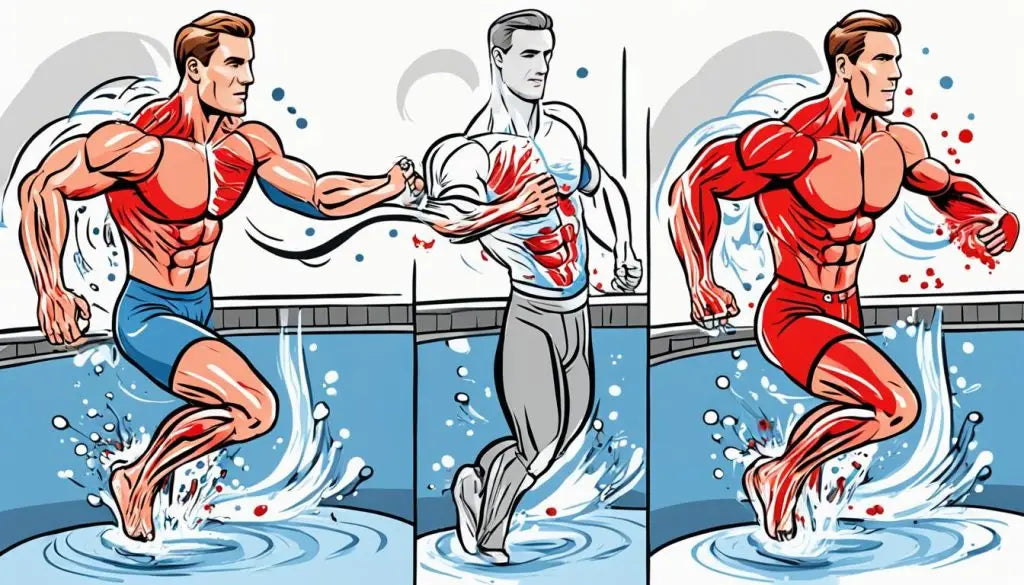
Hydrostatic pressure is crucial for helping blood flow. Immersing in water puts external pressure on the body. This can make circulation better, improving oxygen delivery to muscles. Studies show that water immersion aids in recovery and boosts performance.
Role of Hydrostatic Pressure in Enhancing Blood Flow
Using hydrostatic pressure in water therapy can greatly improve blood flow. This better circulation helps remove metabolic waste quickly. It leads to faster recovery and better training results, especially after hard workouts. It also helps reduce the effects of tiredness and sore muscles.
Vasodilation and Its Effects on Endurance
Vasodilation refers to the expansion of blood vessels. This process helps with circulation, supporting better endurance. Warm water can cause vasodilation, increasing blood flow in muscles. This supplies them with more oxygen and nutrients, essential for lasting performance. Tailoring recovery practices, like water temperature and duration, can help personalise athlete care, improving results.
Timing is vital when it comes to recovery sessions. There's evidence that ice baths may affect muscle growth if taken too soon after training. However, cold-water therapy, at 10°C to 15°C, can enhance mental health, physical performance, and manage pain. For best results, it should be used consistently and tailored to the athlete's needs.
Implementing Effective Pain and Tension Relief Strategies
Athletes pushing their bodies to the limit need effective pain relief and tension relief methods. Hot tubs and hydrotherapy have become key for recovery, offering long-term benefits for performance and wellbeing.
Hot tubs help in muscle relaxation and reducing tension. The warm water and jets speed up recovery by easing muscles and joint pain. This can lead to significant muscle relaxation, help with chronic pain, and lower injury risks.
A balance between training and restorative care is vital for athletes. Using hot tubs for hydrotherapy allows them to handle pain and tension proactively. They can adopt these strategies:
- Water buoyancy aids in low-impact exercises, easing muscle and joint stress.
- Jet streams target specific areas for deeper pain relief.
- Regular hot tub sessions after workouts help in consistent tension easing.
Hydrotherapy stands out for its flexibility. Below, a table shows different techniques and their benefits, guiding athletes on recovery via hot tubs.
| Hydrotherapy Technique | Pain Relief Focus | Tension Relief Focus | Additional Benefits |
|---|---|---|---|
| Warm Water Immersion | Joints and Soft Tissues | Overall Muscular Relaxation | Improved Blood Circulation |
| Jet Stream Therapy | Localized Muscle Groups | Myofascial Release | Increased Mobility |
| Hydro-massage | Chronic Pain Areas | Reduced Muscle Stiffness | Enhanced Recovery Speed |
In conclusion, hot tub hydrotherapy is great for athletes needing pain relief and tension relief. It aids in healing injuries and relaxes muscles after tough workouts. By integrating these strategies, athletes can stay at their best and boost their health and sports longevity.
The Role of Hot Tub Insulation in Consistent Athlete Care
Athlete care goes beyond just training and food. The technology behind recovery, like hot tub insulation, is key. Proper hot tub insulation keeps water temperatures steady for recovery. It also saves energy and costs, important for athletes and facilities with tight budgets.
Maintaining Optimal Water Temperatures for Recovery
Recovery is critical, and hot tubs are a big part of it. Keeping water temperatures just right is essential. It helps muscles recover and makes hydrotherapy work well. Insulated hot tubs keep these temperatures steady, helping athletes relax and heal better.
Energy Efficiency and Long-Term Cost Savings
Energy efficiency of hot tubs is also vital. Insulation helps keep the heat in, so it uses less energy. This reduces costs over time. This is especially key for athletic groups that use hot tubs a lot.
The table below shows the benefits of hot tubs with good insulation versus those without:
| Feature | Well-Insulated Hot Tub | Standard Hot Tub |
|---|---|---|
| Energy Requirements | Lower | Higher |
| Heat Retention | Optimal | Variable |
| Recovery Support | Consistent water temperatures | Fluctuating water temperatures |
| Operational Costs | Reduced over time | Increased over time |
With the right features, hot tubs help athletes recover well. At the same time, they allow for sustainable management. It shows why hot tub insulation is vital for athlete care. It aids their physical recovery and the industry's financial well-being.
Conclusion
Exploring hot tub benefits has shown they are great for athletes. They help with recovery, boost performance, and make you feel good overall. Using hot tubs regularly helps athletes relax and prevents injuries. This shows how important hydrotherapy is for a good recovery.
Hot tubs also help athletes sleep better. Good sleep is key for recovery and doing well in sports. These benefits together support athletes in a big way. They help them stay healthy and perform at their best.
In closing, hot tubs are really useful for athletes' training and recovery plans. They offer comfort and protect against injuries. This means athletes can keep doing well in their sports. So, for athletes wanting to do better, trying hydrotherapy could be a big help.
FAQ
What are the benefits of hot tubs for athletes?
Hot tubs help athletes recover better and perform well. They offer a space for relaxation and healing. This helps lessen muscle pain, aids muscle repair, and prevents injuries.
How does hydrotherapy benefit professional athletes?
Hydrotherapy is great for professional athletes. It reduces swelling, boosts blood flow, and eases muscle tightness. It also helps with relaxation and mental health.
What are the advantages of using hot tubs for muscle recovery?
Hot tubs speed up muscle recovery. They help with muscle repair and lower inflammation. Warm water boosts blood flow and removes waste from muscles, cutting down on soreness.
How can hot tubs help athletes manage stress and enhance mental wellness?
Hot tubs make a relaxing space to lower athletic stress and boost mental health. They use hydrotherapy, mindfulness, and relaxation to reduce stress and better performance.
Can hot tubs prevent injuries in athletes?
Indeed, hot tubs can prevent injuries. They relax muscles, boost flexibility, and lessen the risk of strains and tears. Adding hot tub sessions to recovery plans can lower injury risks.
How can hot tubs improve sleep patterns for athletes?
Hot tubs promote better sleep for athletes. They offer relaxation that leads to quality sleep, enhancing rest and recovery. Good sleep boosts performance and overall health.
How can hydrotherapy be used to manage chronic ailments in athletes?
Hydrotherapy helps athletes with chronic issues. Hot tubs ease joint pain, lower inflammation, and soothe muscle aches. Special techniques target and help with these chronic problems.
Are inflatable hot tubs practical for athletic therapy at home?
Yes, inflatable hot tubs are handy for therapy at home. They are easy to set up and move, letting athletes enjoy hydrotherapy's benefits at home without a fixed setup.
How does improved circulation through hot tub use enhance athletic performance?
Hot tubs boost circulation, which helps with muscle recovery, reduces tiredness, and improves endurance. Better circulation means better performance for athletes.
What role do hot tubs play in pain and tension relief for athletes?
Hot tubs effectively relieve pain and tension. Relaxation and stress relief in hot tubs help ease workout pain and aid in healing injuries. Techniques like hydrotherapy jets target pain areas.
Why is hot tub insulation important for consistent athlete care?
Insulation is crucial for continuous athlete care in hot tubs. It keeps water at the right temperature for recovery, making hydrotherapy more beneficial. It also saves energy and costs in the long run.


